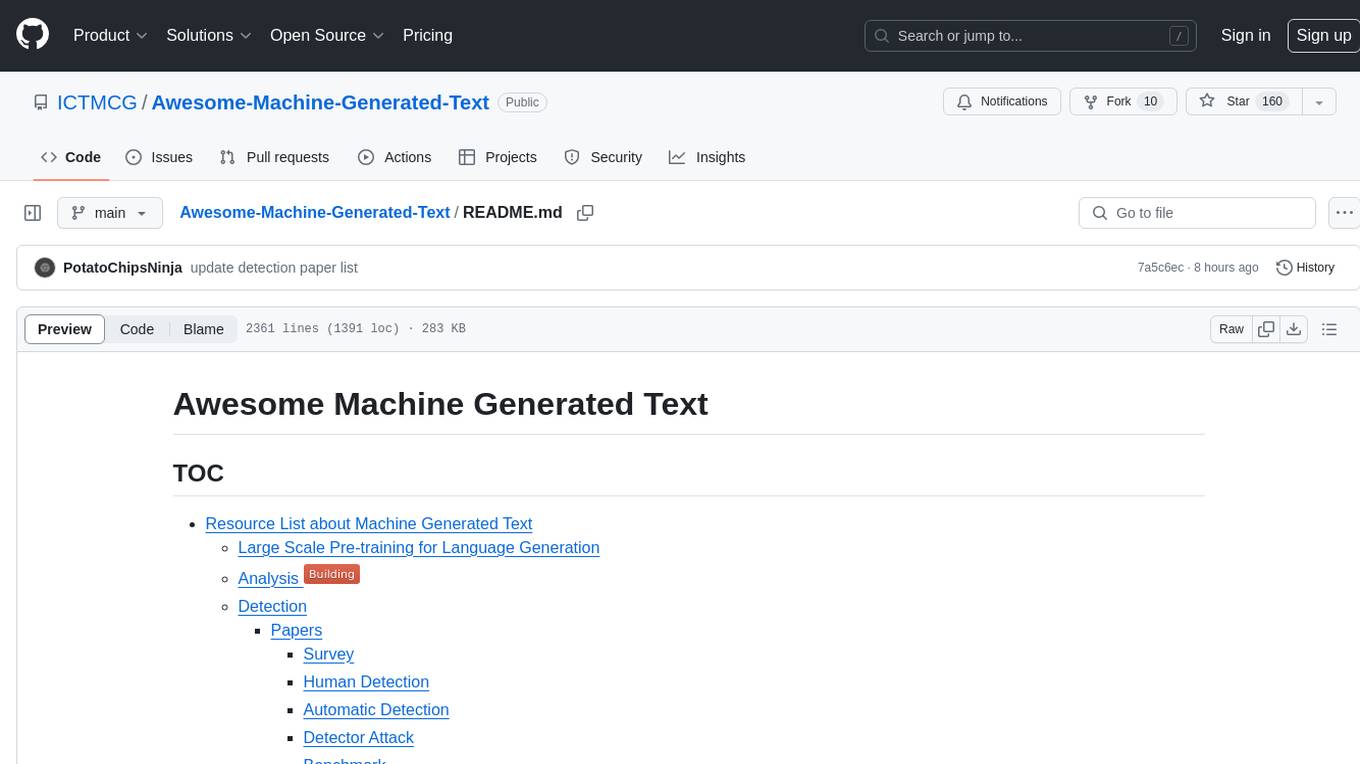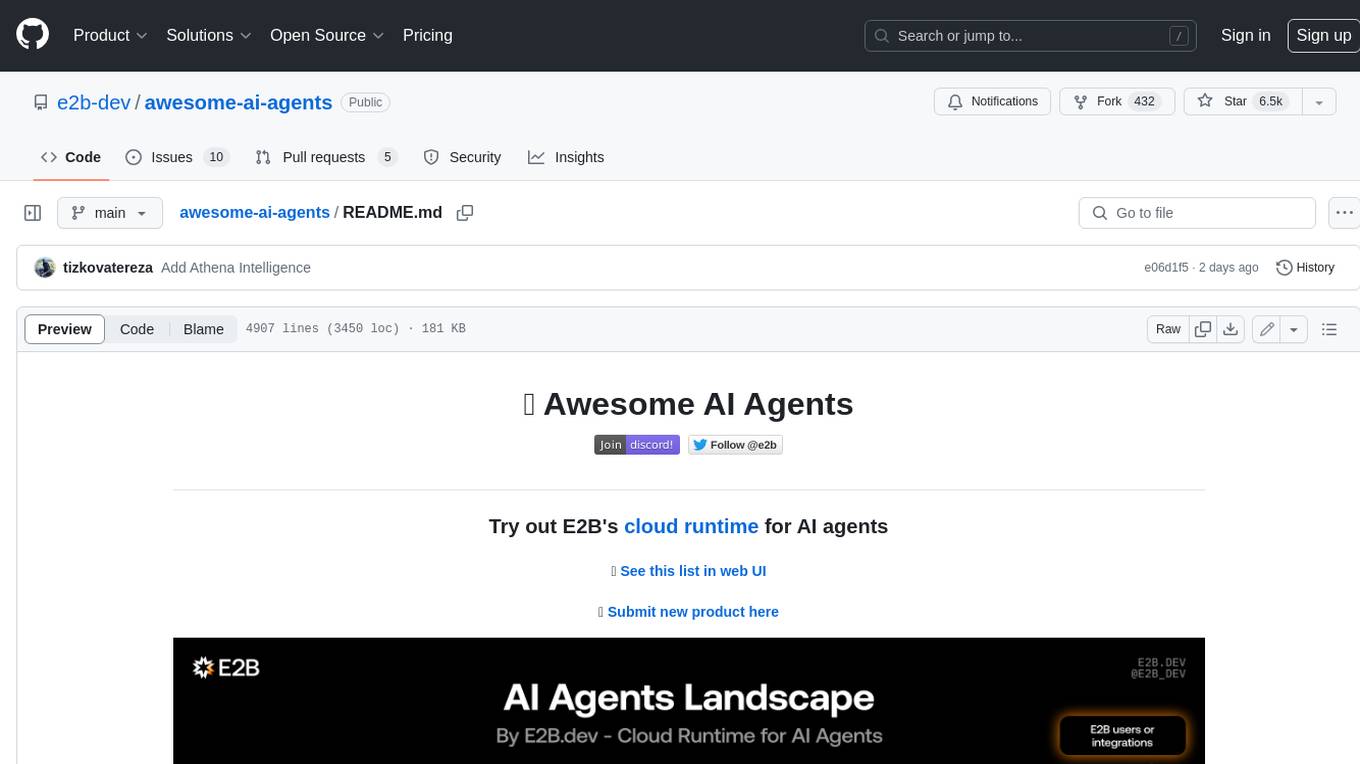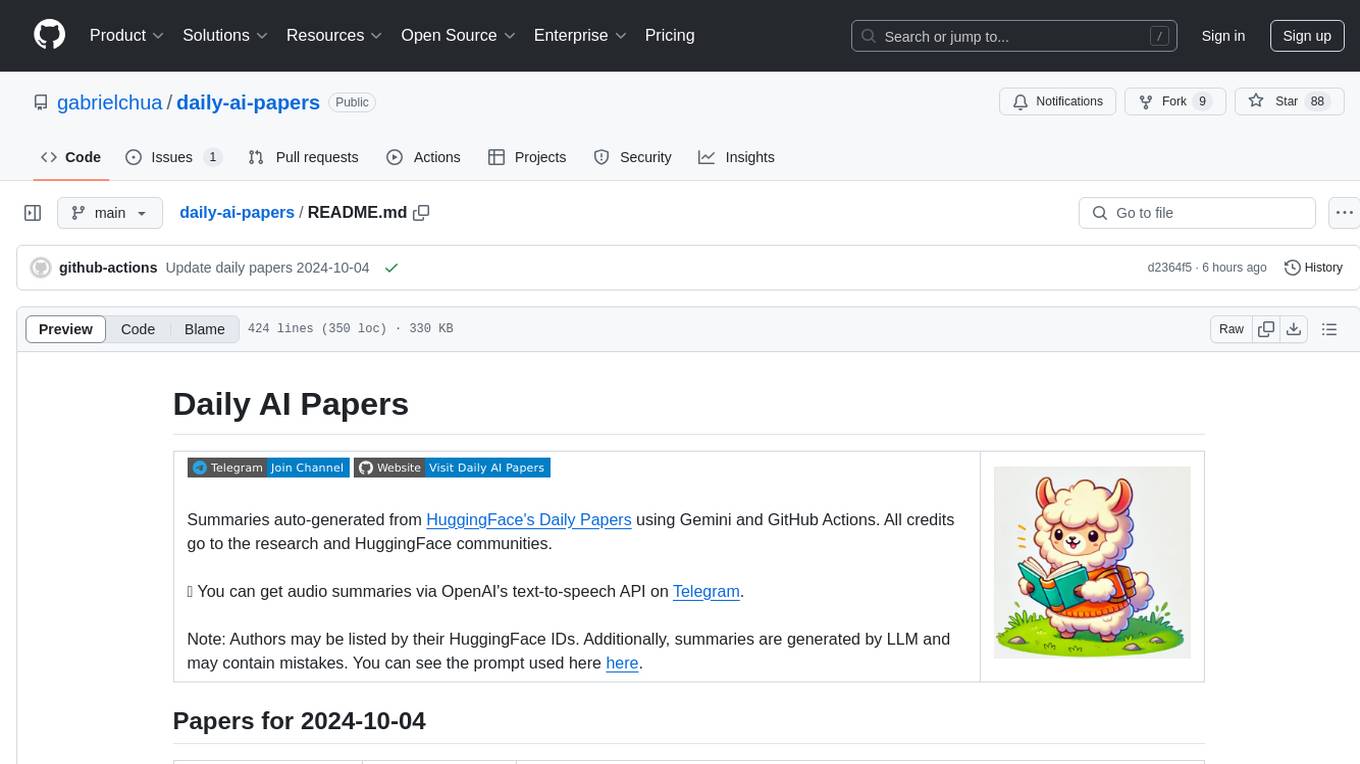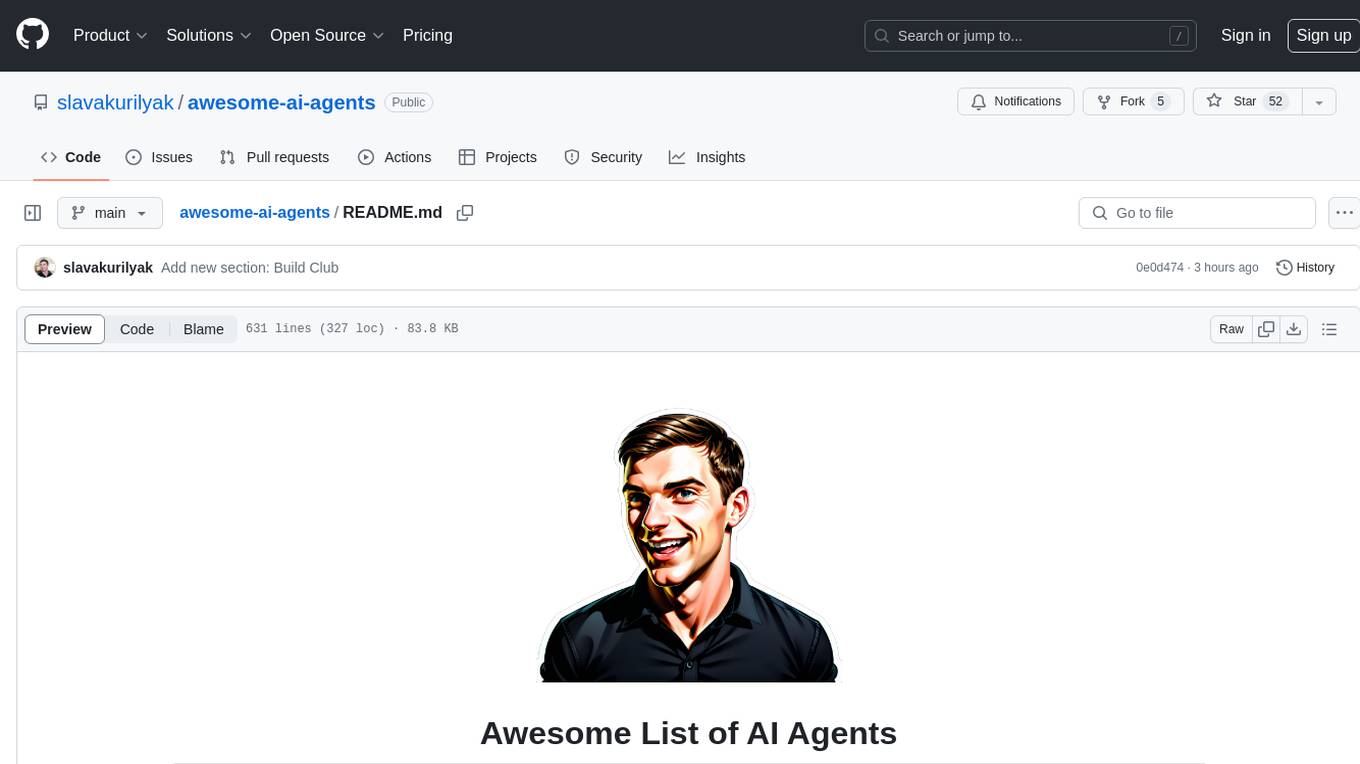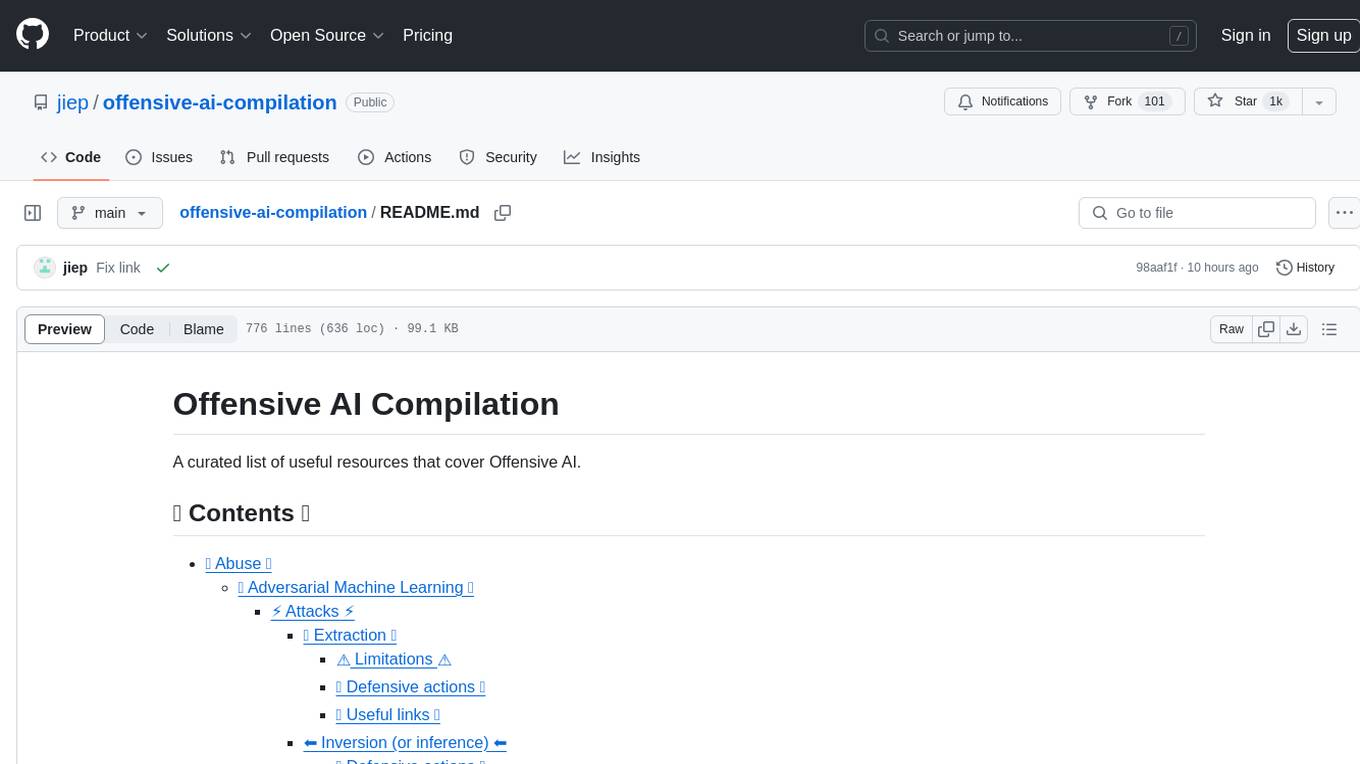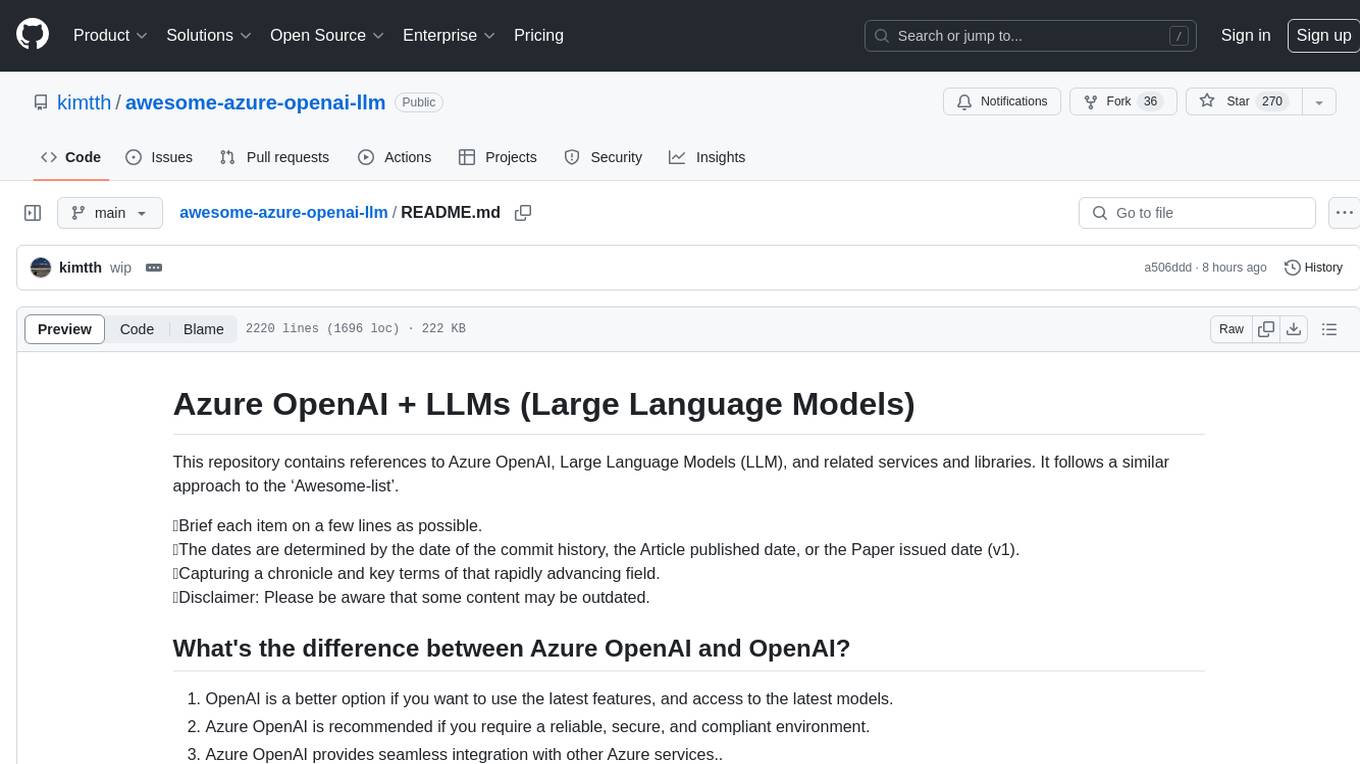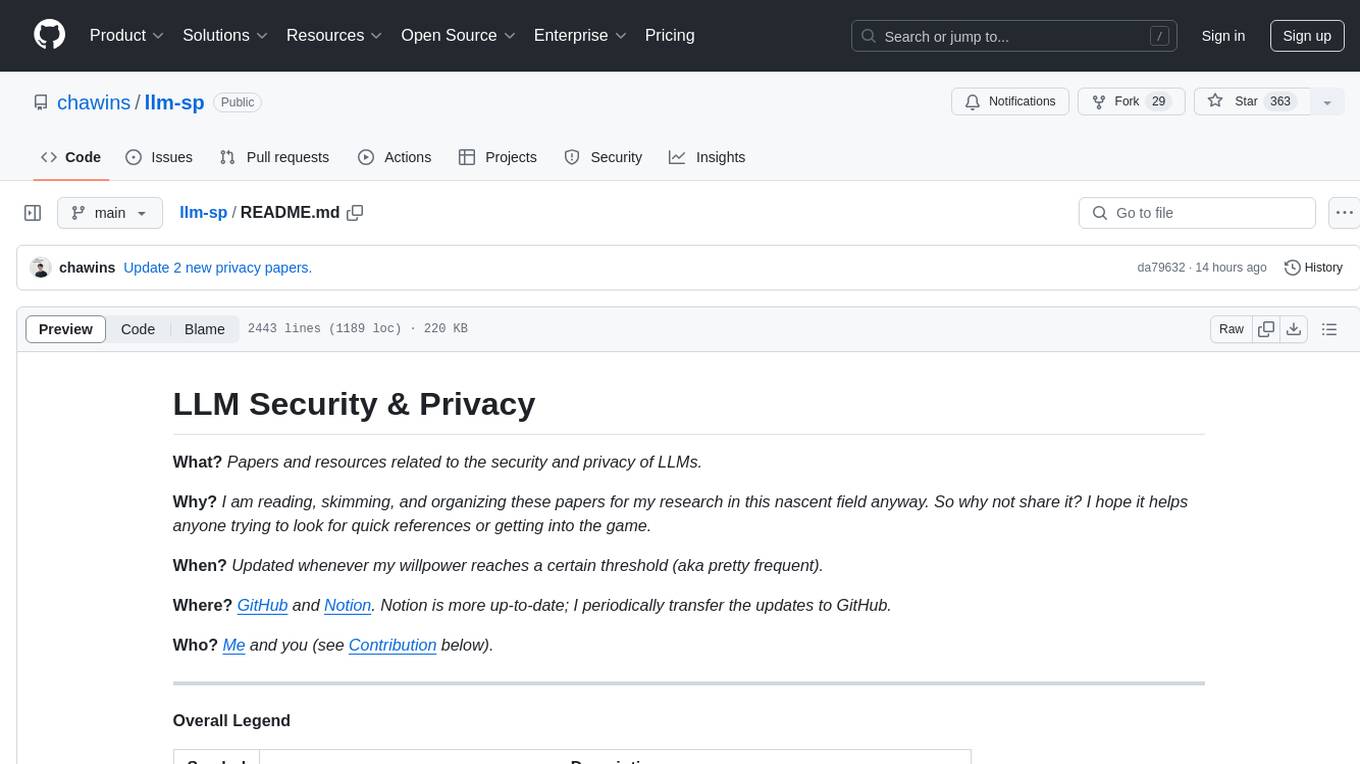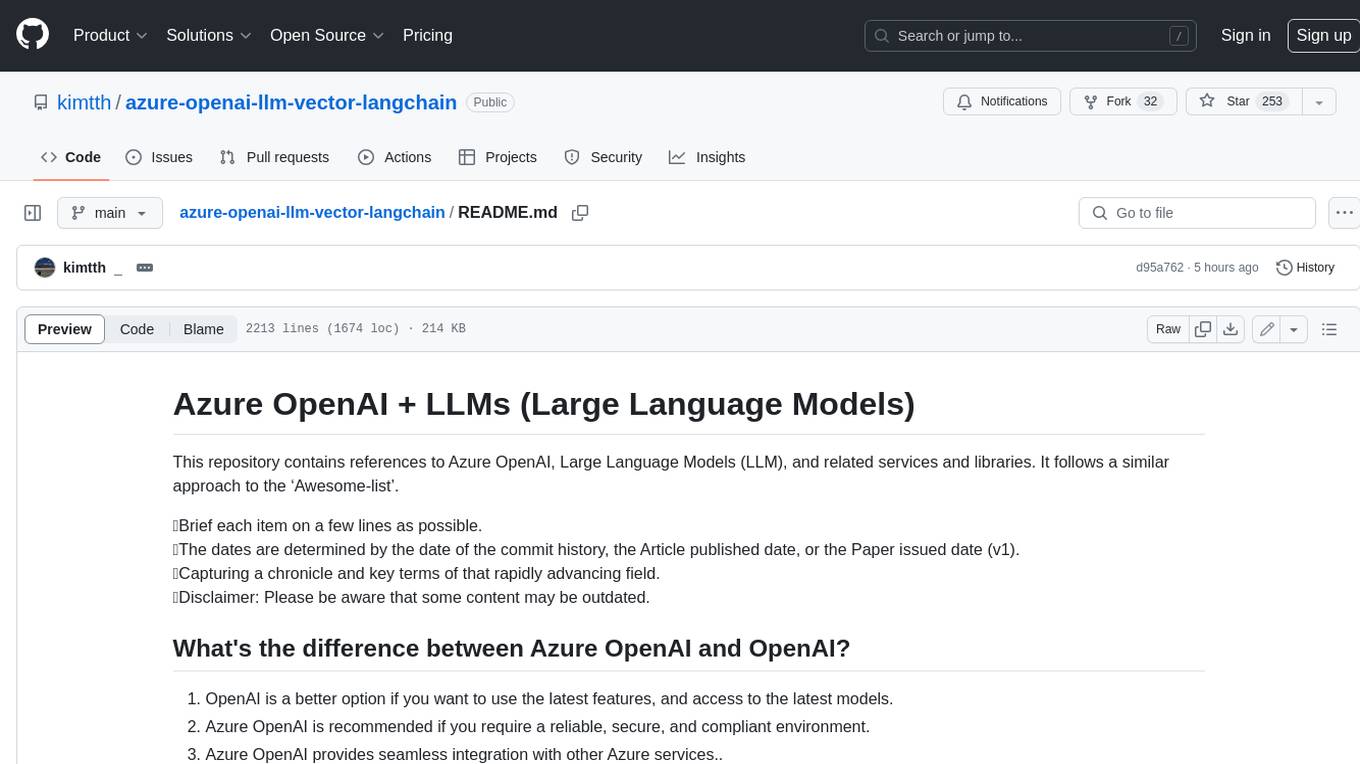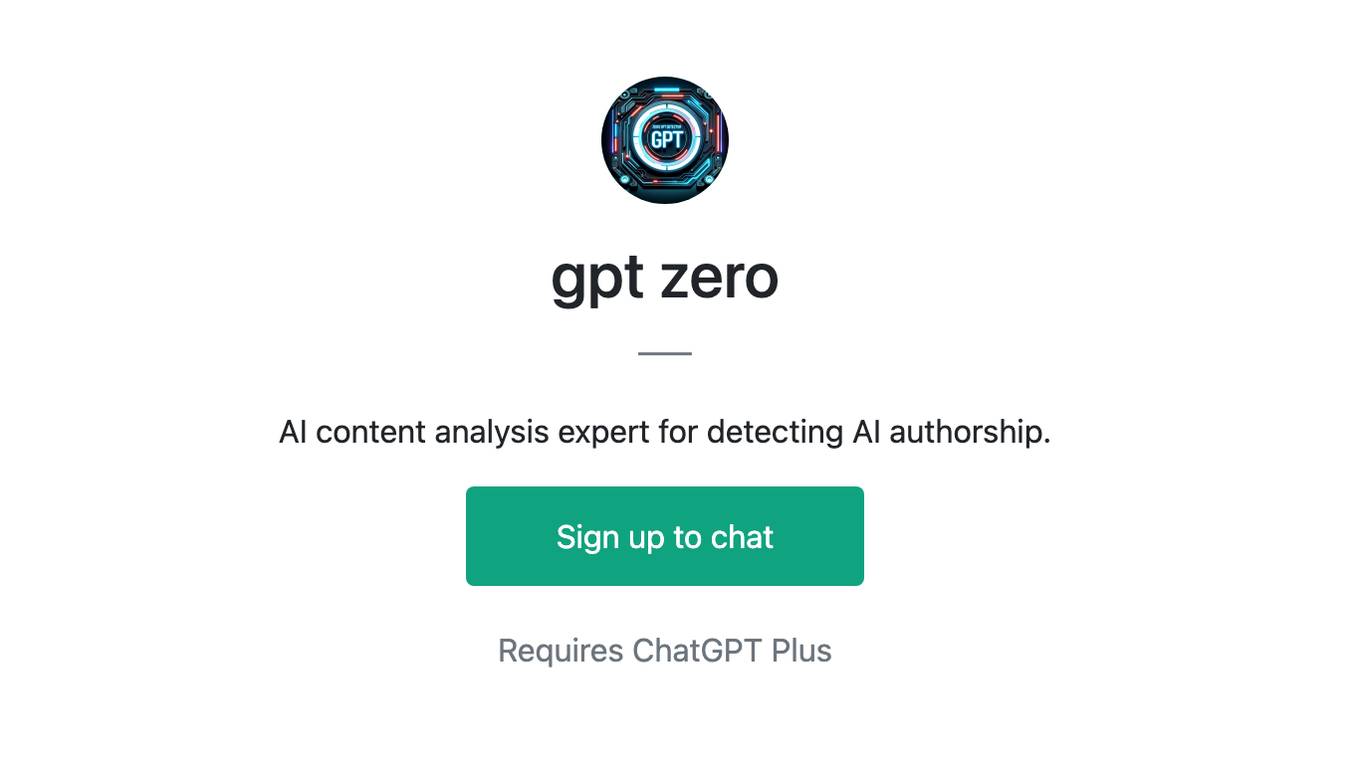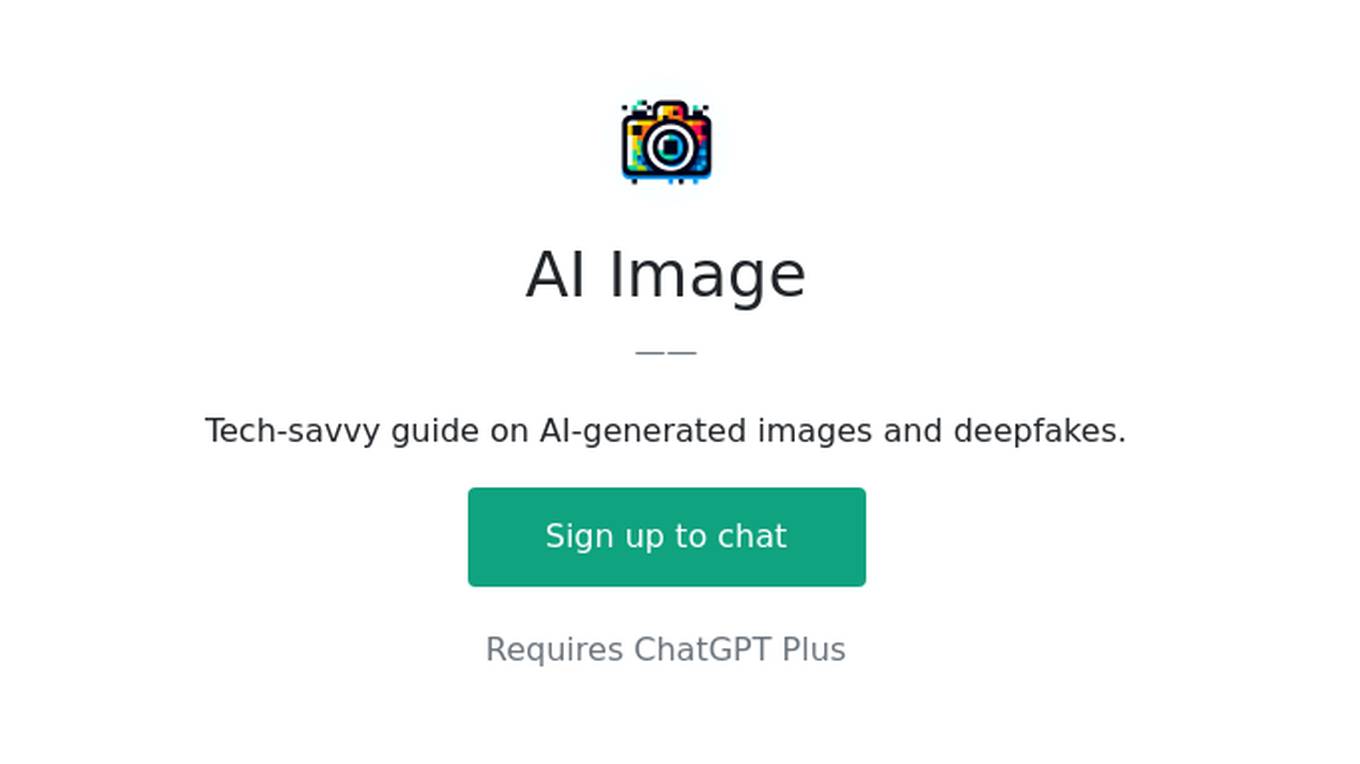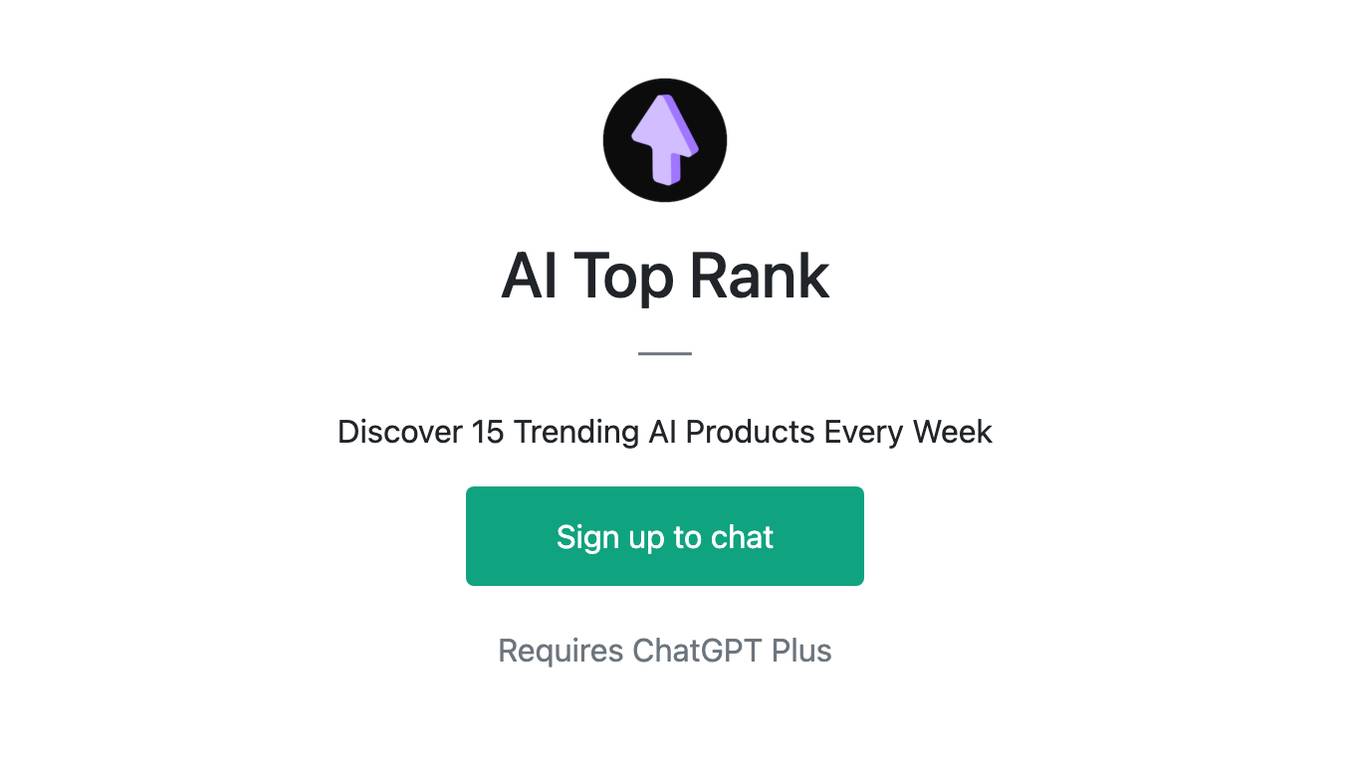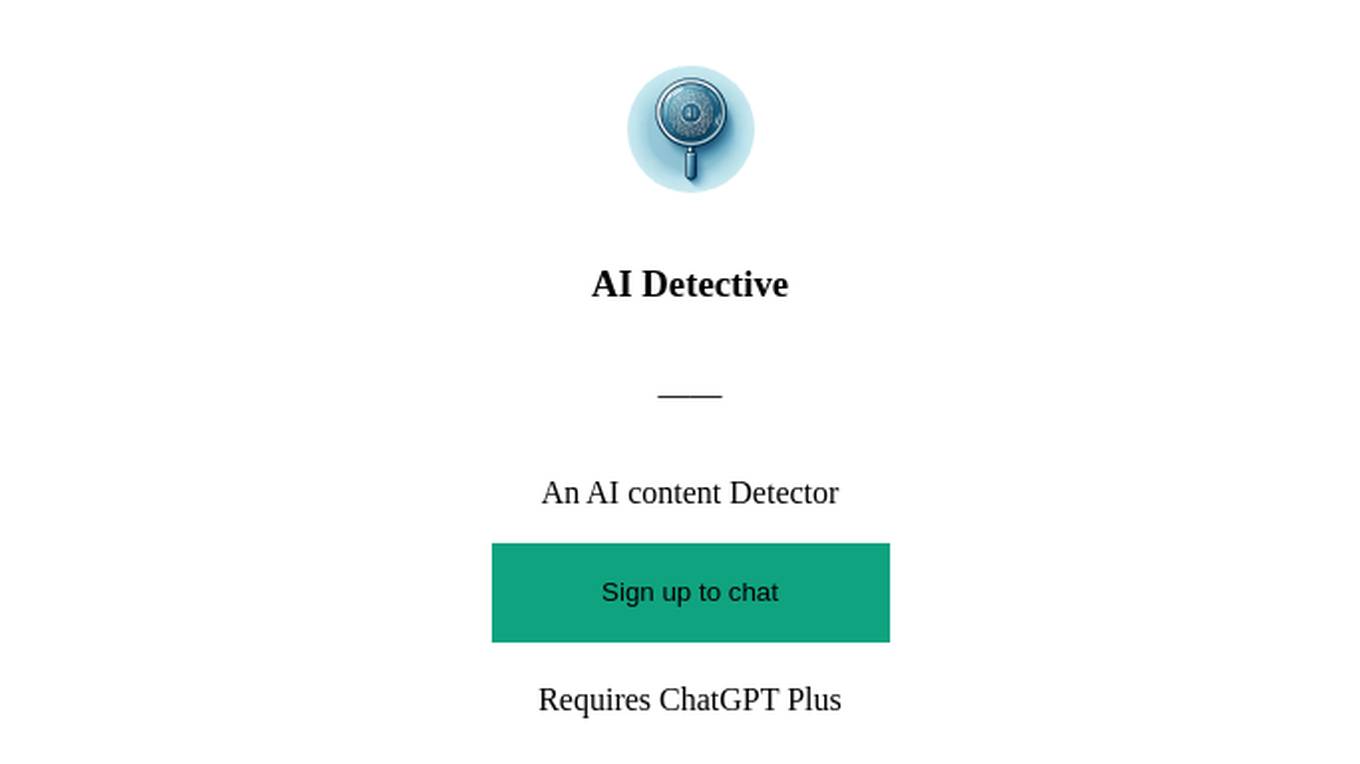Best AI tools for< Detect Ai-generated Code >
20 - AI tool Sites
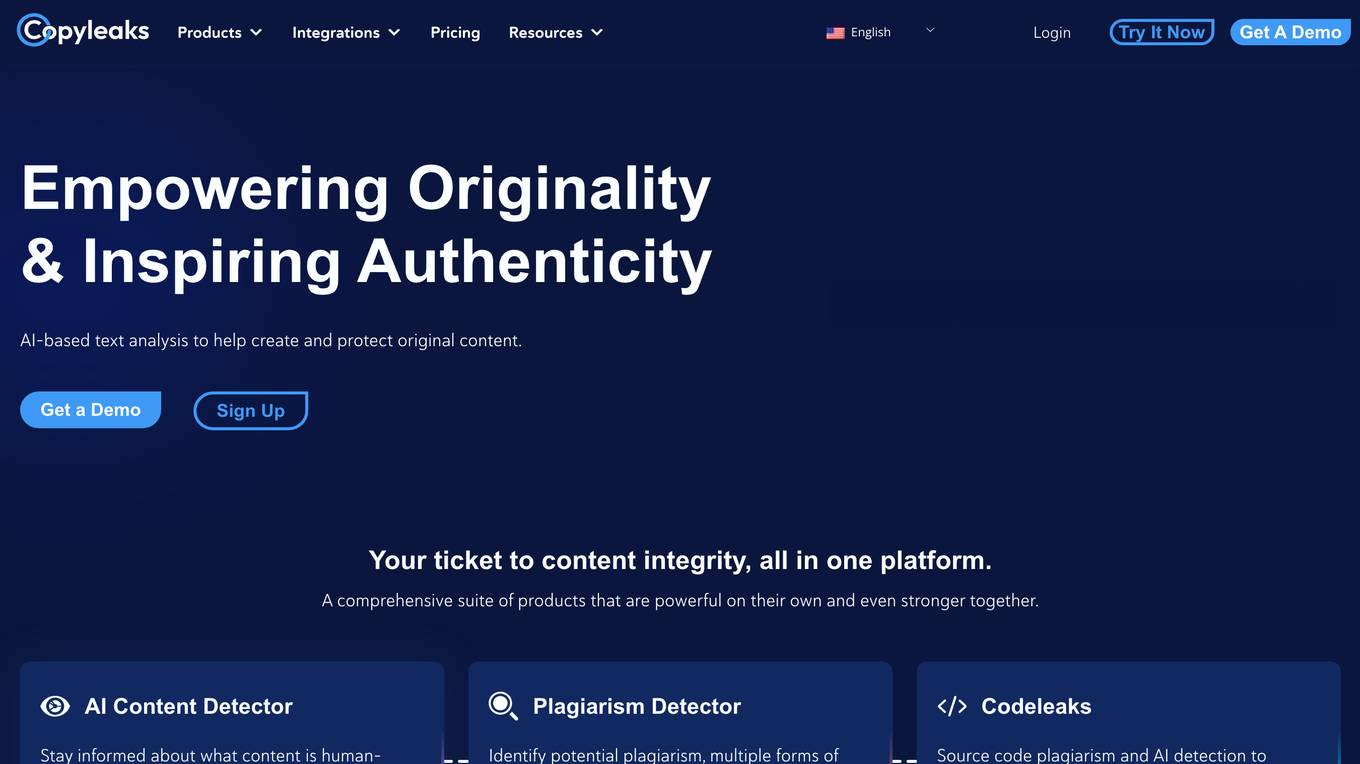
Copyleaks
Copyleaks is an AI-based plagiarism and content detection tool that offers a comprehensive solution for verifying the authenticity of written content. It provides features such as AI Detector for verifying content authorship, Plagiarism Detector for identifying plagiarism, Codeleaks for detecting AI-generated code, and Writing Assistant for error-free writing. The platform also includes solutions for AI adoption in education, governance, and grading standardized tests. Copyleaks helps users safeguard content, ensure originality, and adopt AI responsibly.
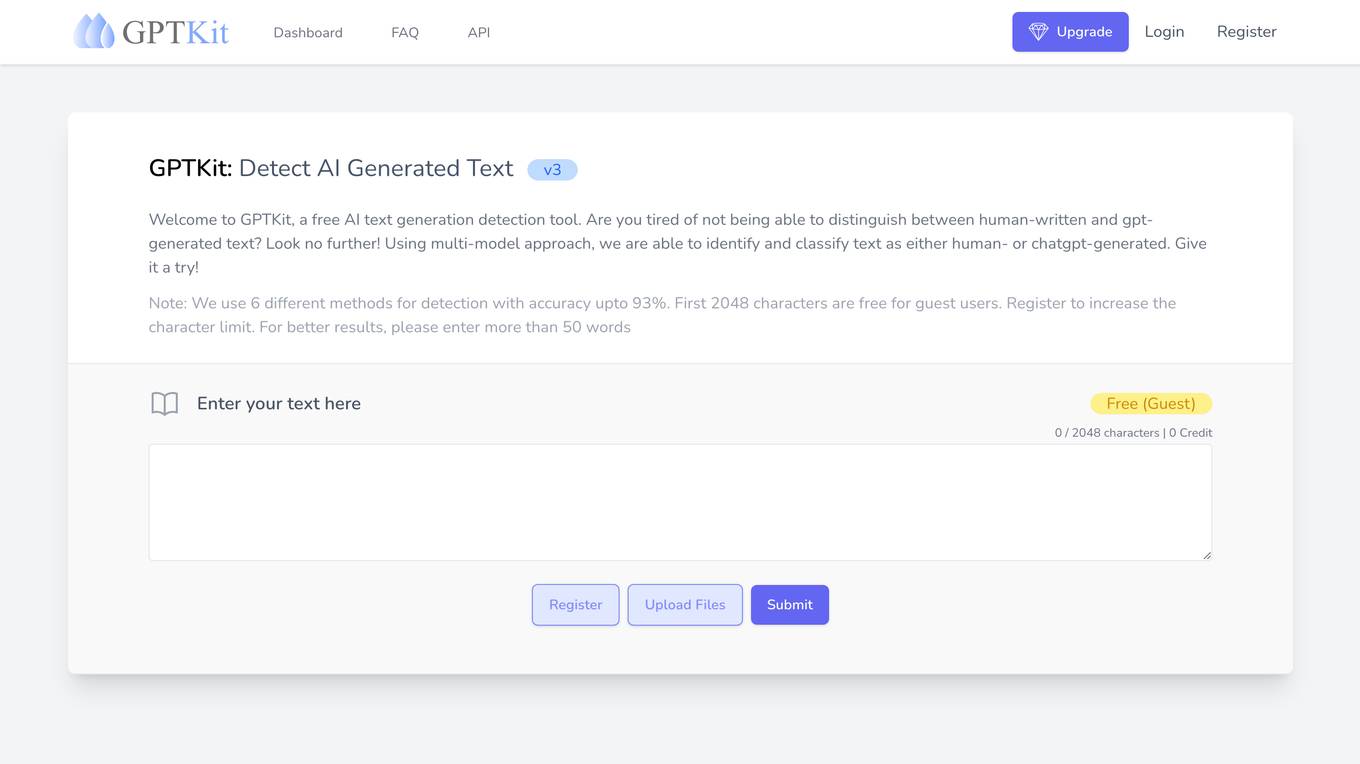
GPTKit
GPTKit is a free AI text generation detection tool that utilizes six different AI-based content detection techniques to identify and classify text as either human- or AI-generated. It provides reports on the authenticity and reality of the analyzed content, with an accuracy of approximately 93%. The first 2048 characters in every request are free, and users can register for free to get 2048 characters/request.

VIDOC
VIDOC is an AI-powered security engineer that automates code review and penetration testing. It continuously scans and reviews code to detect and fix security issues, helping developers deliver secure software faster. VIDOC is easy to use, requiring only two lines of code to be added to a GitHub Actions workflow. It then takes care of the rest, providing developers with a tailored code solution to fix any issues found.
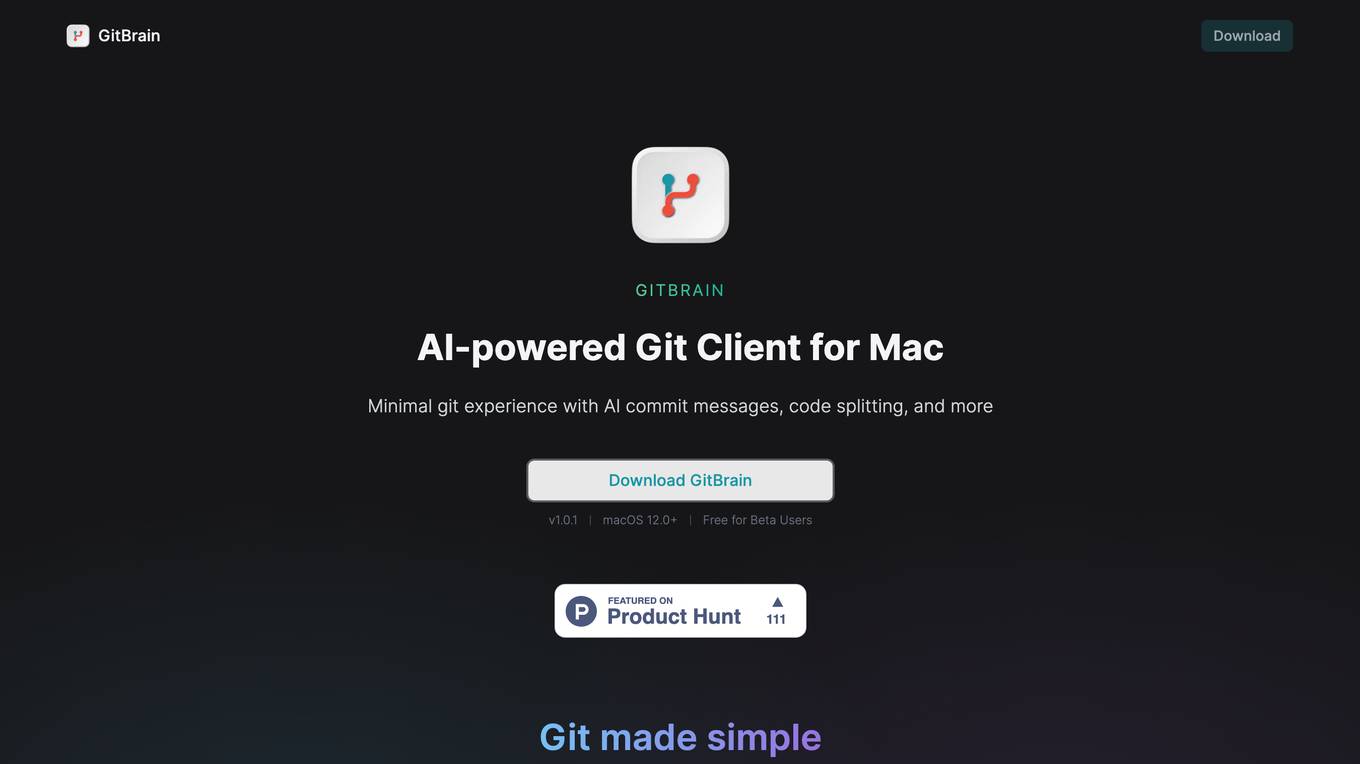
GitBrain
GitBrain is an AI-powered Git client designed for Mac users. It simplifies the Git workflow by offering features like AI commit messages, code splitting, self-code review, auto-detection of projects, and keyboard-friendly design. With GitBrain, developers can focus on coding while the AI handles Git operations efficiently. The application enhances productivity by intelligently splitting code changes into multiple AI-generated commits, providing summaries for code changes, and offering a seamless Git management experience. GitBrain is optimized for Mac performance with a native UI and supports light & dark mode themes.
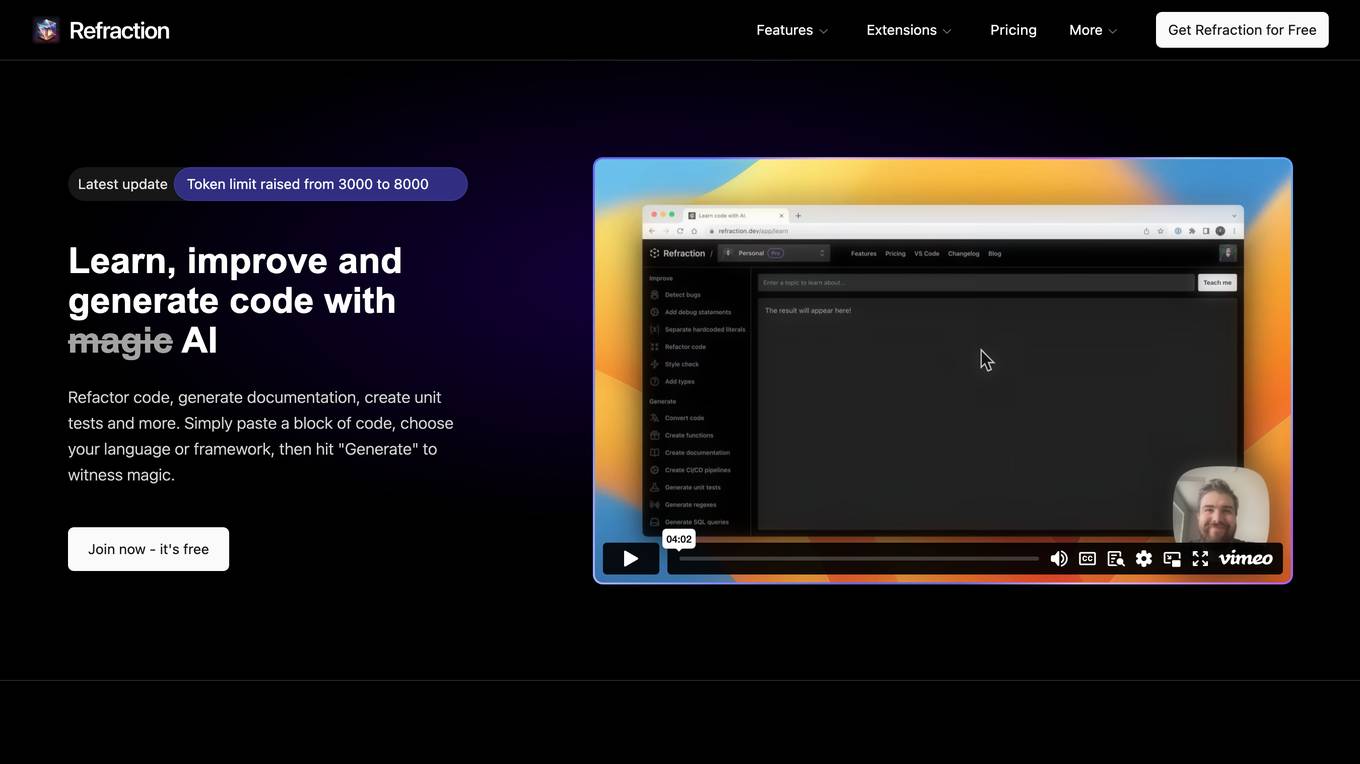
Refraction
Refraction is a code generation tool that uses AI to help developers write better code. It can be used to generate unit tests, documentation, refactor code, and more. Refraction is designed for developers of all levels and can be used with a variety of programming languages and frameworks.
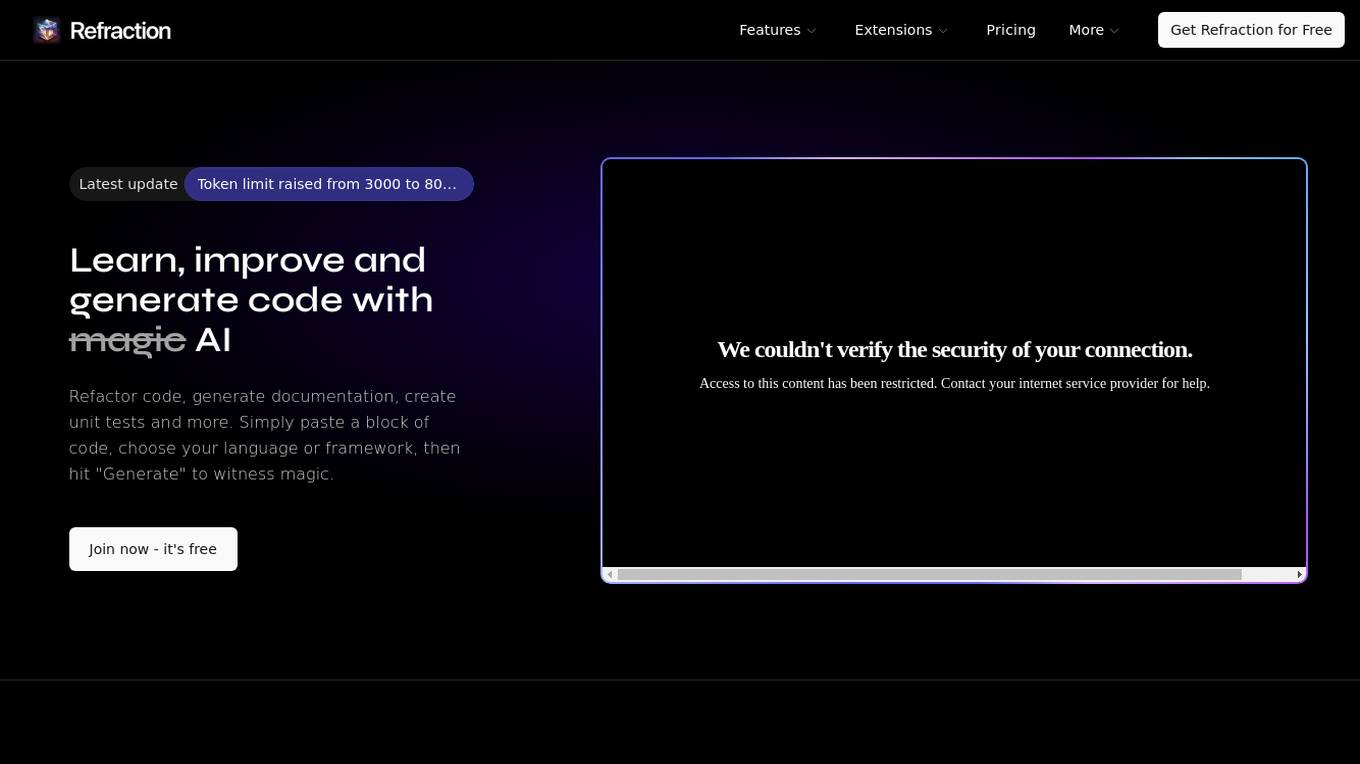
Refraction
Refraction is an AI-powered code generation tool designed to help developers learn, improve, and generate code effortlessly. It offers a wide range of features such as bug detection, code conversion, function creation, CSP generation, CSS style conversion, debug statement addition, diagram generation, documentation creation, code explanation, code improvement, concept learning, CI/CD pipeline creation, SQL query generation, code refactoring, regex generation, style checking, type addition, and unit test generation. With support for 56 programming languages, Refraction is a versatile tool trusted by innovative companies worldwide to streamline software development processes using the magic of AI.
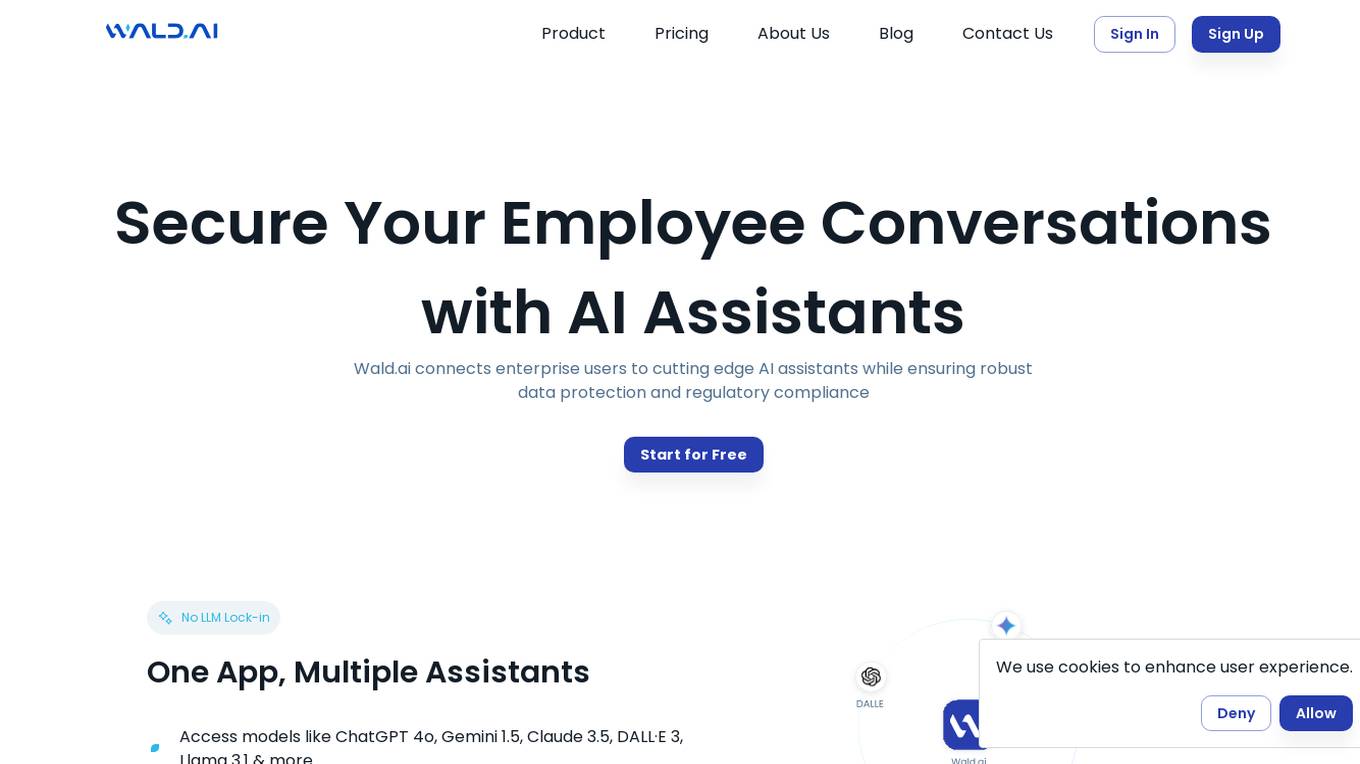
Wald.ai
Wald.ai is an AI tool designed for businesses to protect Personally Identifiable Information (PII) and trade secrets. It offers cutting-edge AI assistants that ensure data protection and regulatory compliance. Users can securely interact with AI assistants, ask queries, generate code, collaborate with internal knowledge assistants, and more. Wald.ai provides total data and identity protection, compliance with various regulations, and user and policy management features. The platform is used by businesses for marketing, legal work, and content creation, with a focus on data privacy and security.
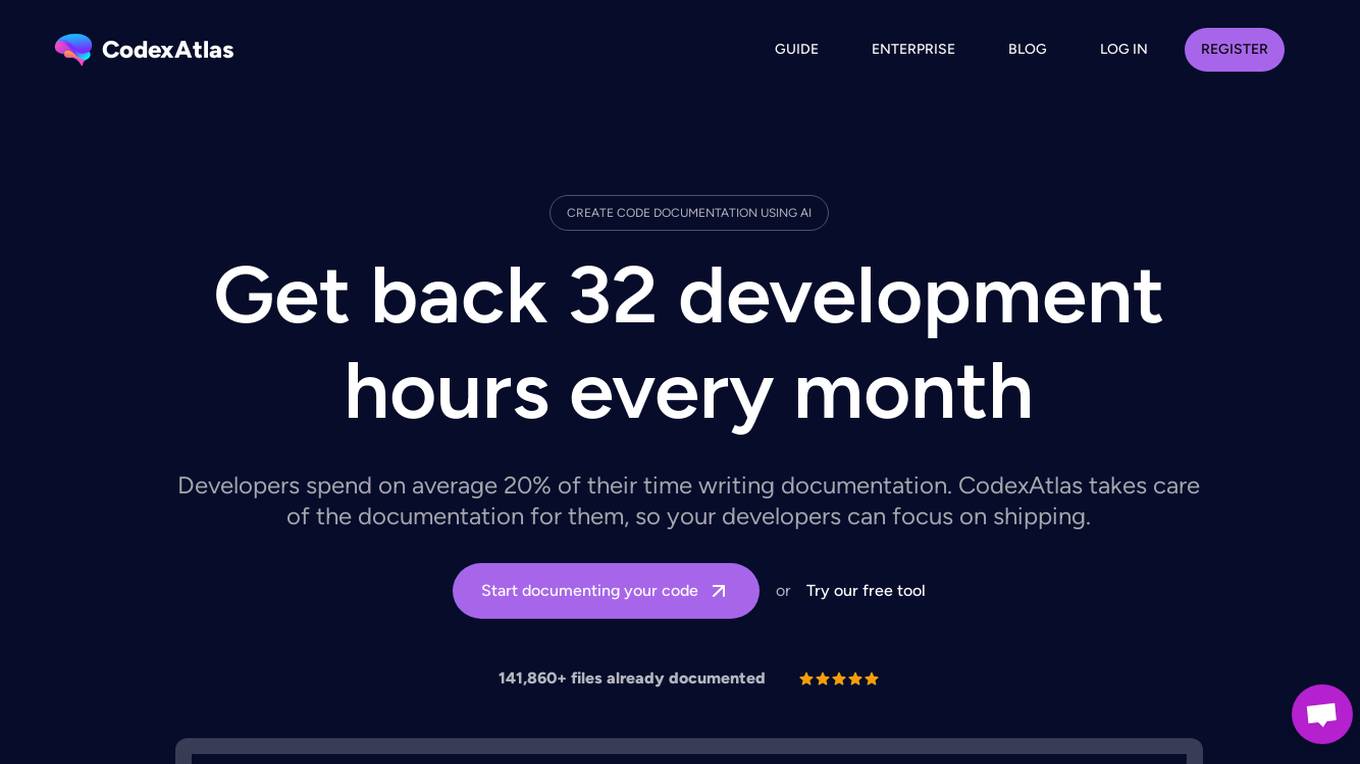
CodexAtlas
CodexAtlas is an AI-powered tool designed to automate code documentation processes. It leverages the latest advancements in Artificial Intelligence to generate and maintain documentation for software projects, freeing developers from the time-consuming task of writing documentation. With features like real-time updates, onboarding time reduction, and use-case detection, CodexAtlas aims to streamline the documentation process and enhance developer productivity. The tool also offers code conversion capabilities, business domain knowledge integration, and the option for on-premise deployment to cater to diverse organizational needs.
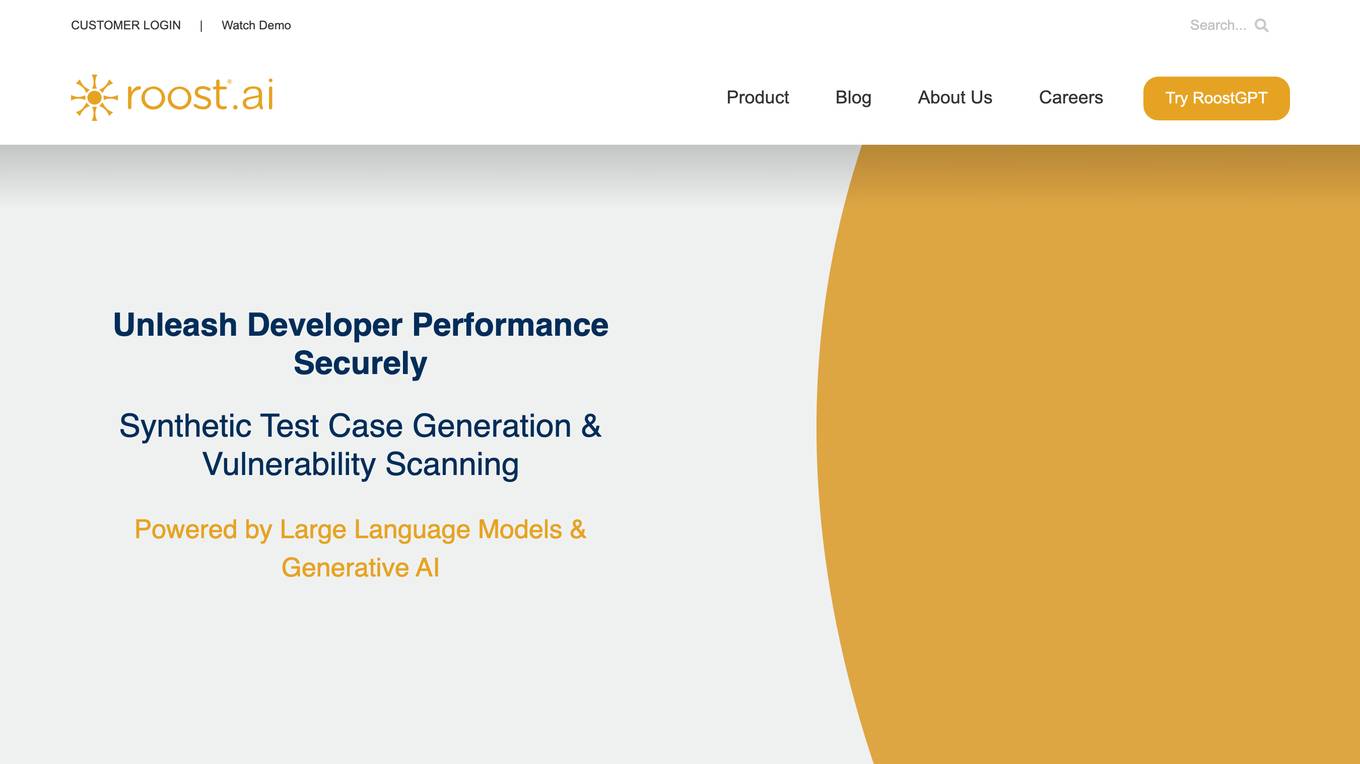
Roost.ai
Roost.ai is an AI-driven testing copilot that offers automated test case generation using Large Language Models (LLMs). It helps in building reliable software by providing 100% test coverage, detecting static vulnerabilities, and freeing up developer time. Roost.ai is trusted by global financial institutions and industry leaders for its ability to elevate test accuracy and coverage through generative AI technology.
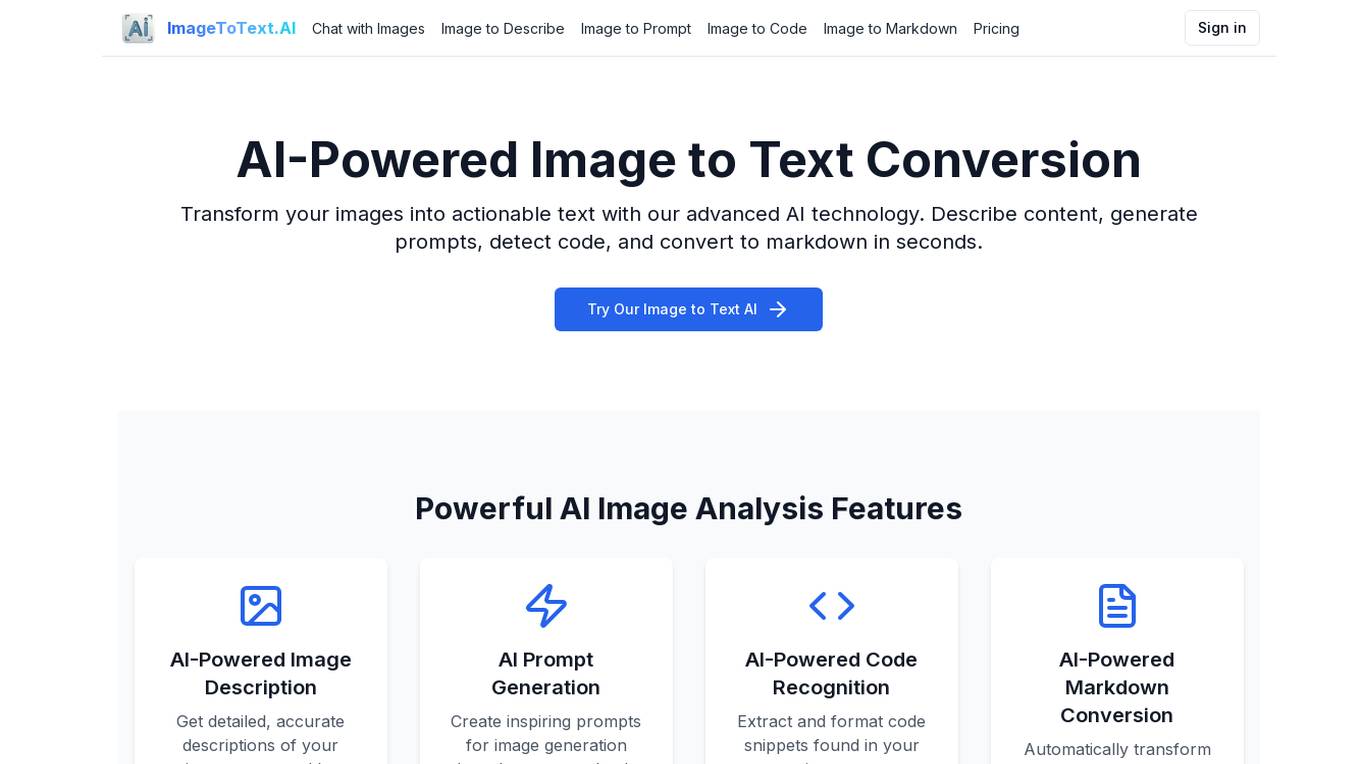
ImageToText.AI
ImageToText.AI is an AI-powered tool that allows users to convert images into actionable text using advanced AI technology. Users can describe image content, generate prompts, detect code, and convert to markdown in seconds. The tool offers powerful AI image analysis features such as image description, prompt generation, code recognition, and markdown conversion. With simple and transparent pricing options, users can choose between a one-time purchase or a monthly subscription plan. ImageToText.AI aims to provide users with a seamless experience in transforming images into text with the help of AI technology.
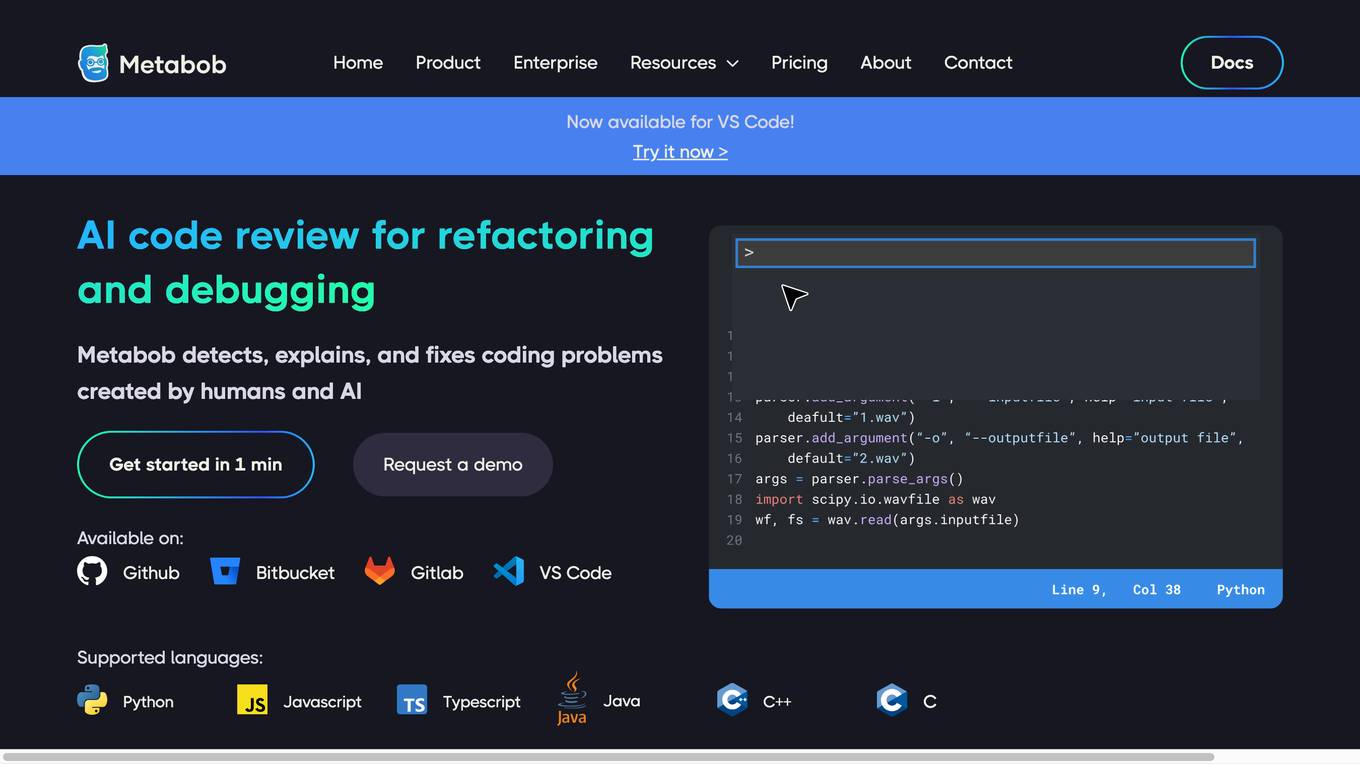
Metabob
Metabob is an AI-powered code review tool that helps developers detect, explain, and fix coding problems. It utilizes proprietary graph neural networks to detect problems and LLMs to explain and resolve them, combining the best of both worlds. Metabob's AI is trained on millions of bug fixes performed by experienced developers, enabling it to detect complex problems that span across codebases and automatically generate fixes for them. It integrates with popular code hosting platforms such as GitHub, Bitbucket, Gitlab, and VS Code, and supports various programming languages including Python, Javascript, Typescript, Java, C++, and C.
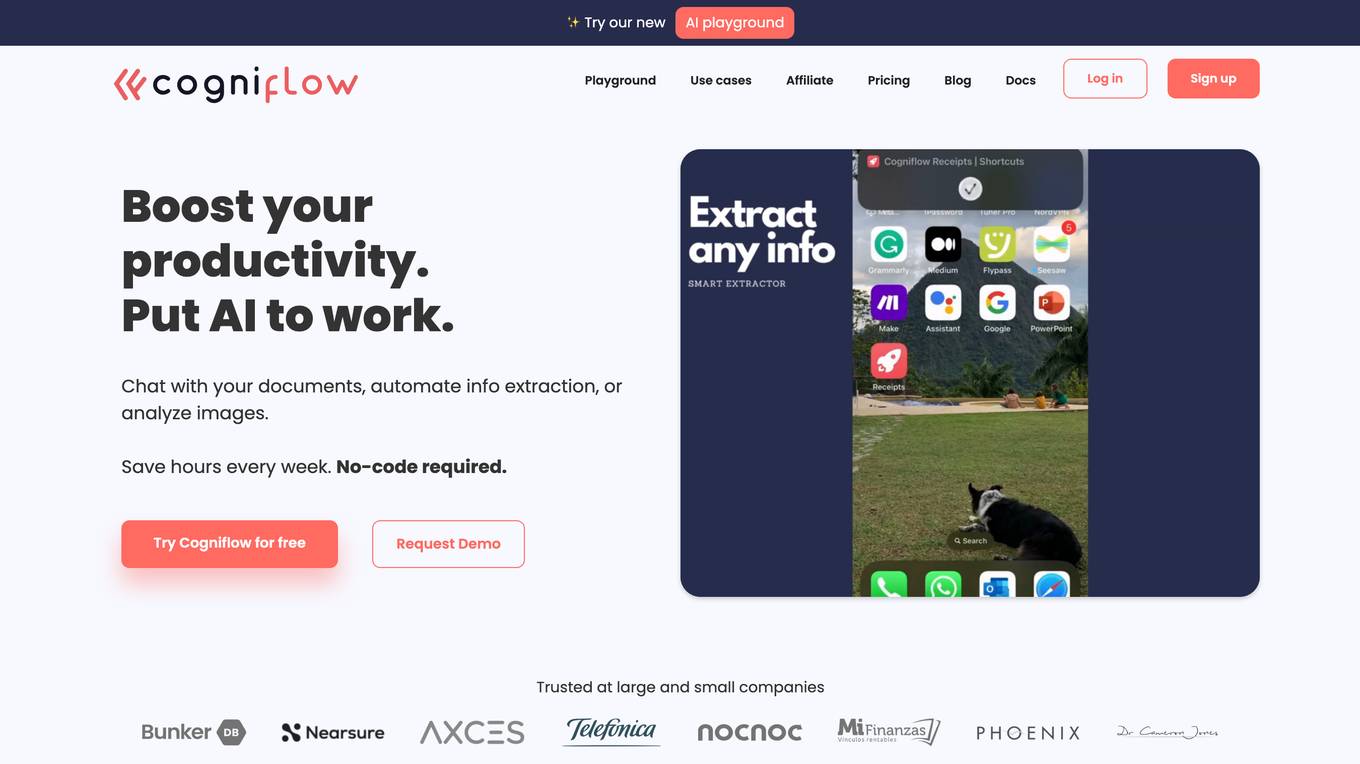
Cogniflow
Cogniflow is a no-code AI platform that allows users to build and deploy custom AI models without any coding experience. The platform provides a variety of pre-built AI models that can be used for a variety of tasks, including customer service, HR, operations, and more. Cogniflow also offers a variety of integrations with other applications, making it easy to connect your AI models to your existing workflow.
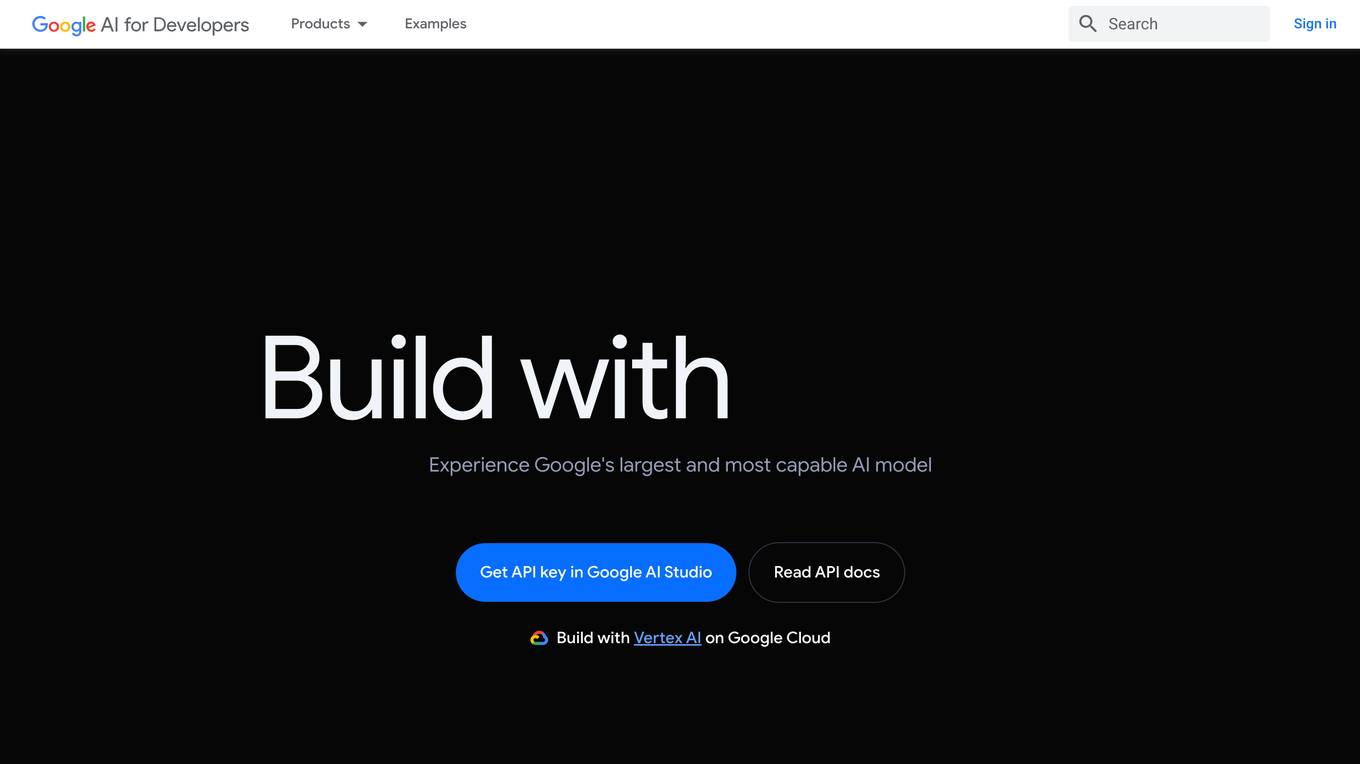
Gemini
Gemini is a large and powerful AI model developed by Google. It is designed to handle a wide variety of text and image reasoning tasks, and it can be used to build a variety of AI-powered applications. Gemini is available in three sizes: Ultra, Pro, and Nano. Ultra is the most capable model, but it is also the most expensive. Pro is the best performing model for a wide variety of tasks, and it is a good value for the price. Nano is the most efficient model, and it is designed for on-device use cases.
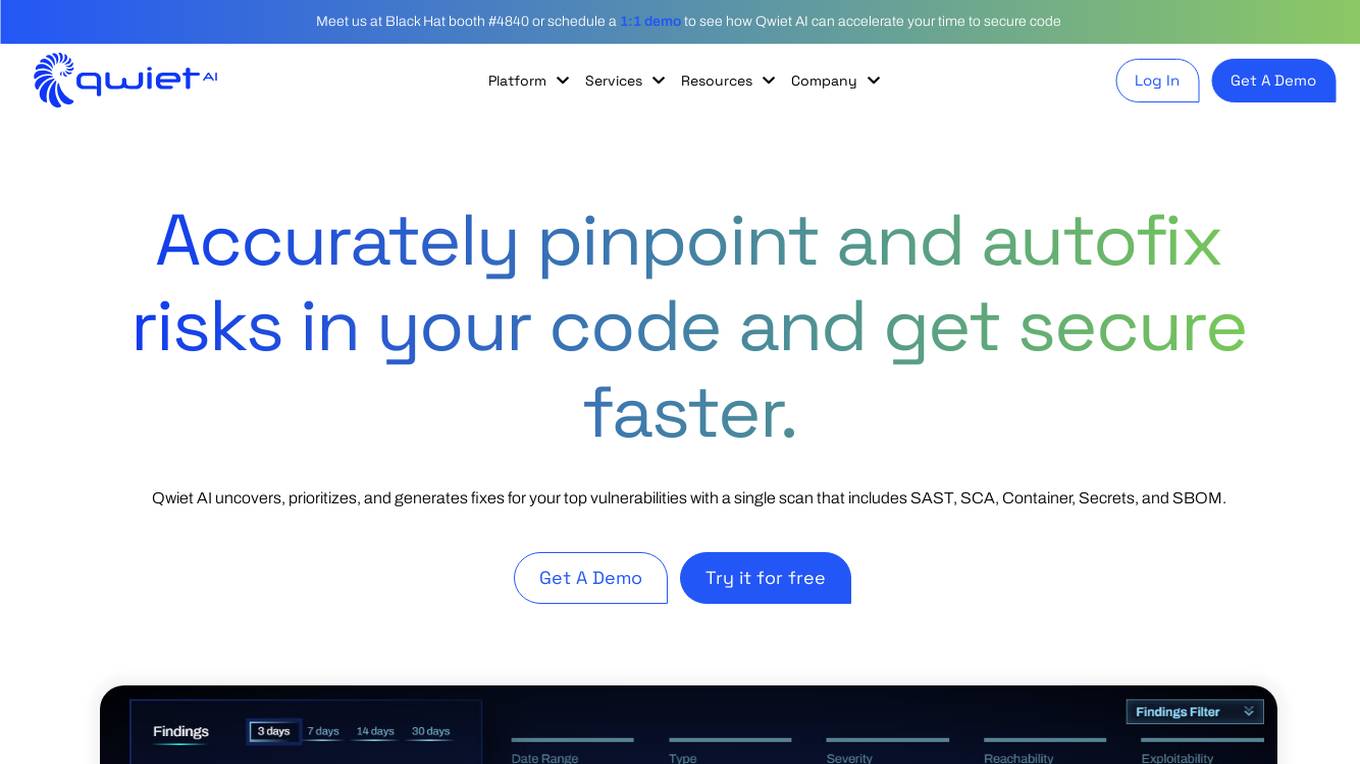
Qwiet AI
Qwiet AI is a code vulnerability detection platform that accelerates secure coding by uncovering, prioritizing, and generating fixes for top vulnerabilities with a single scan. It offers features such as AI-enhanced SAST, contextual SCA, AI AutoFix, Container Security, SBOM, and Secrets detection. Qwiet AI helps InfoSec teams in companies to accurately pinpoint and autofix risks in their code, reducing false positives and remediation time. The platform provides a unified vulnerability dashboard, prioritizes risks, and offers tailored fix suggestions based on the full context of the code.
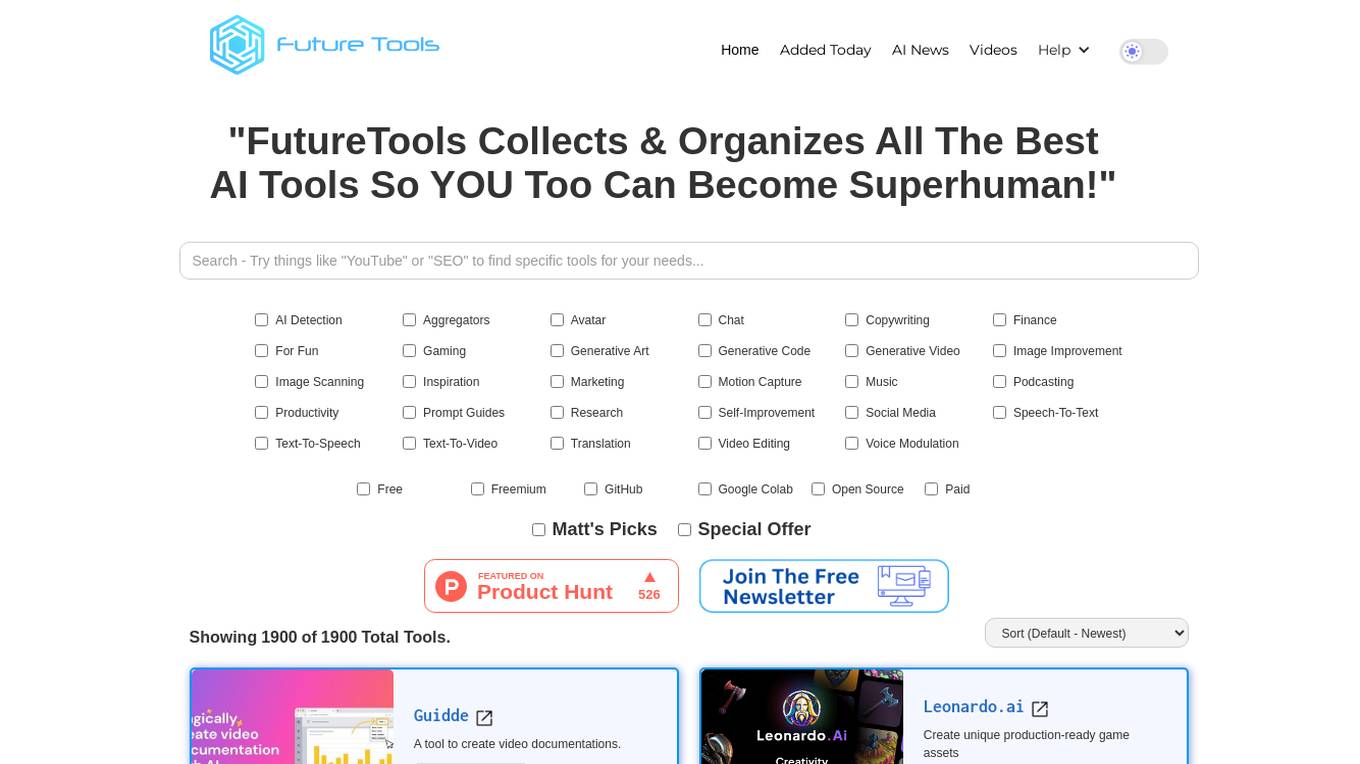
Future Tools
Future Tools is a website that collects and organizes AI tools. It provides a comprehensive list of AI tools categorized into various domains, including AI detection, aggregators, avatar chat, copywriting, finance, gaming, generative art, generative code, generative video, image improvement, image scanning, inspiration, marketing, motion capture, music, podcasting, productivity, prompt guides, research, self-improvement, social media, speech-to-text, text-to-speech, text-to-video, translation, video editing, and voice modulation. The website also offers a search bar to help users find specific tools based on their needs.

AI or Not
AI or Not is an AI-powered tool that helps businesses and individuals detect AI-generated images and audio. It uses advanced machine learning algorithms to analyze content and determine the likelihood of AI manipulation. With AI or Not, users can protect themselves from fraud, misinformation, and other malicious activities involving AI-generated content.
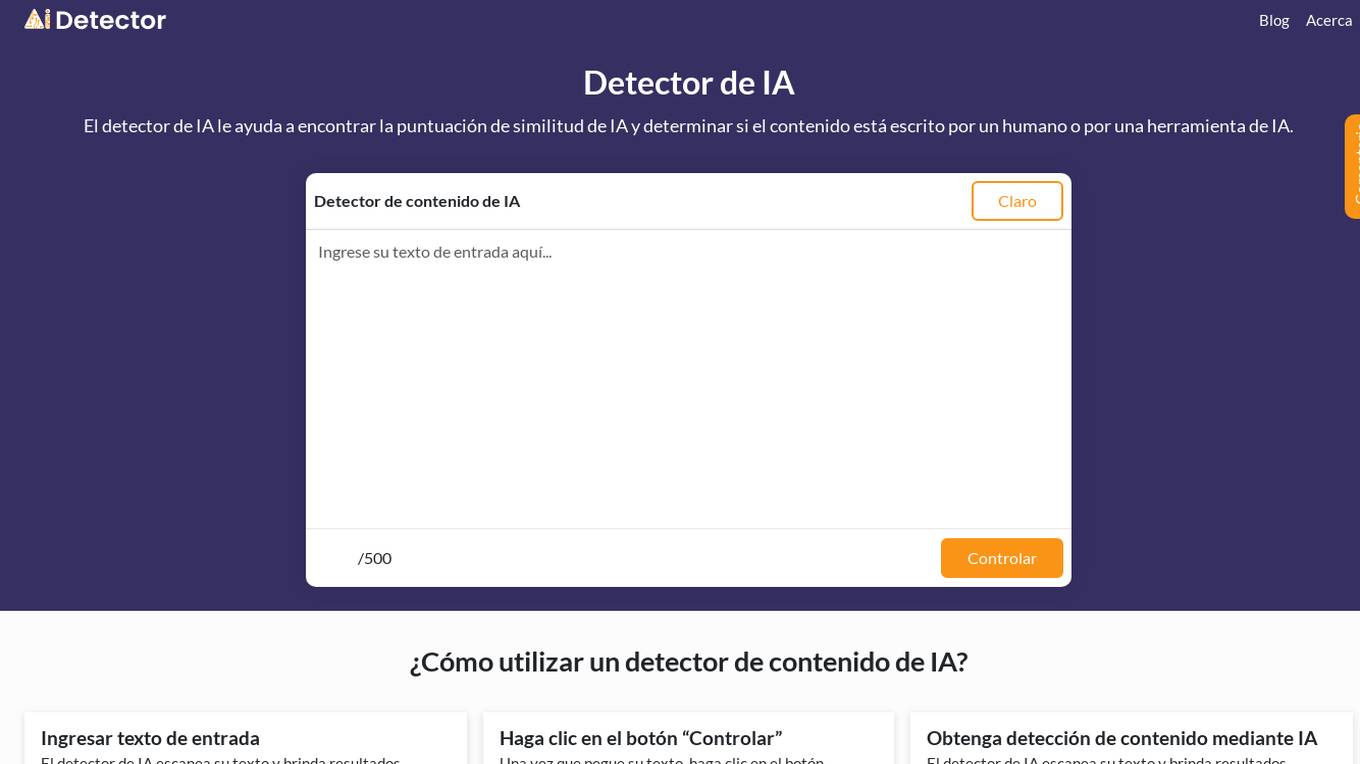
AI Content Detector
The AI Content Detector is an online tool that helps users determine the similarity score of AI-generated content and whether it was written by a human or an AI tool. It utilizes advanced algorithms and natural language processing to analyze text, providing a percentage-based authenticity result. Users can input text for analysis and receive accurate results regarding the likelihood of AI authorship. The tool compares syntax, vocabulary, and semantics with AI and human models, offering high accuracy in identifying paraphrased content.

TrueBees
TrueBees is a deepfakes detector application designed to verify the trustworthiness of images shared on social media. It utilizes AI technology to detect AI-generated portraits and prevent their dissemination online. The tool is specifically tailored for media professionals and law firms to ensure the authenticity of images used in news articles, legal cases, and social media posts. TrueBees aims to combat the spread of deepfakes and disinformation by providing a reliable solution for image verification.
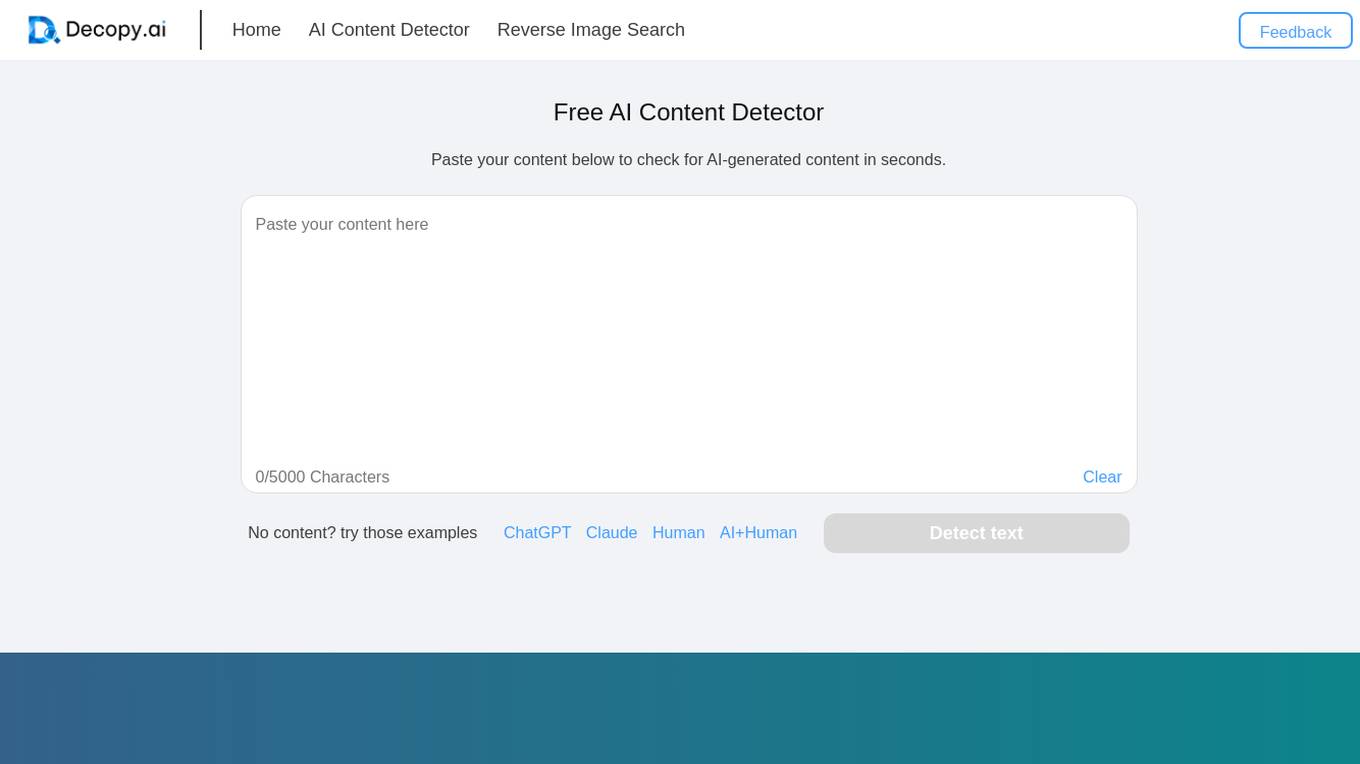
Decopy AI Content Detector
Decopy AI Content Detector is an AI tool designed to help users determine if a given text was written by a human or generated by AI. It accurately identifies AI-generated, paraphrased, and human-written content. The tool offers features such as AI content highlighting, superior detection accuracy, user-friendly interface, free AI detection, instant access without sign-up, and guaranteed privacy. Users can utilize the AI Detector for tasks like academic integrity checks, content creation, journalism verification, publishing standards maintenance, SEO content uniqueness, social media reliability checks, legal document originality verification, and corporate training material quality assurance.
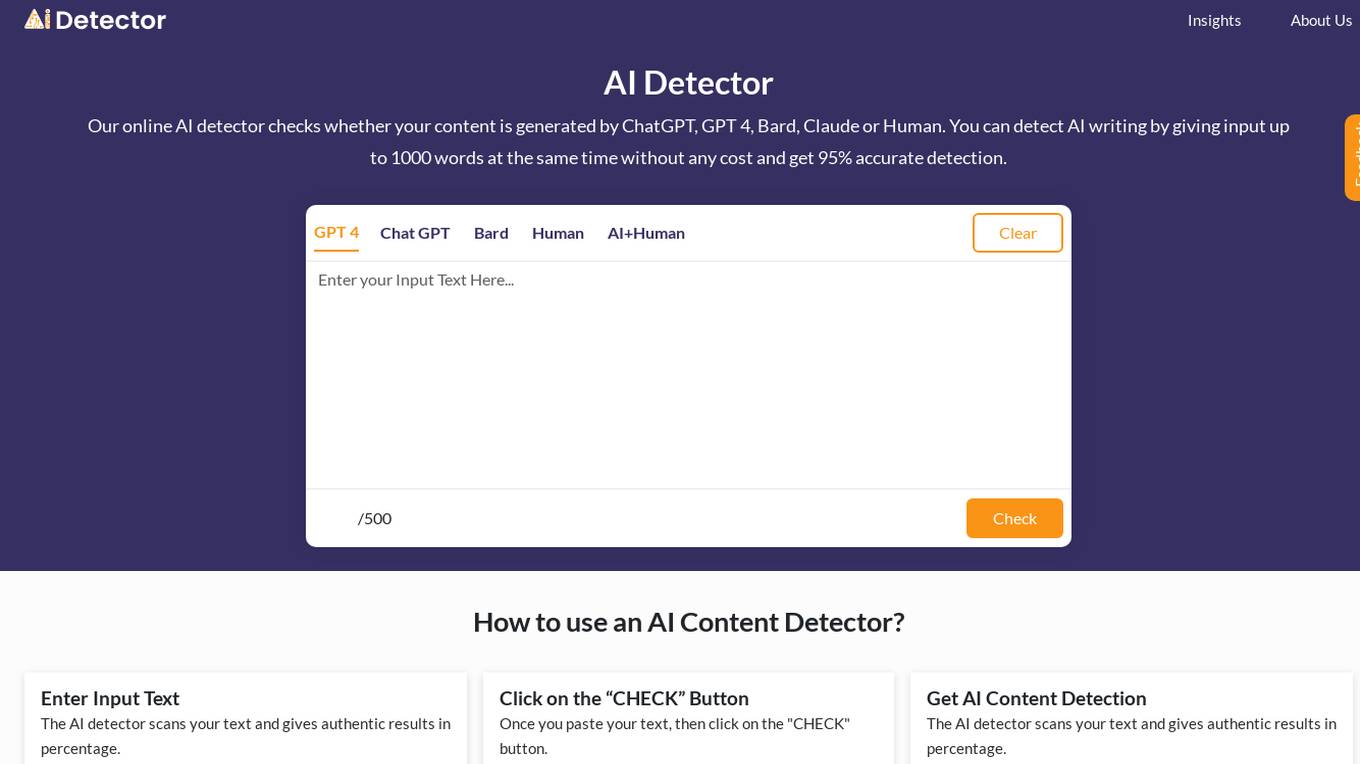
AI Detector
AI Detector is an online tool that uses advanced algorithms and machine learning to check if your written text is generated by AI or a human writer. It analyzes the writing style, sentence structure, and other linguistic patterns to determine the likelihood of AI authorship. The tool provides a percentage score indicating the probability of AI-generated content, helping users identify potential plagiarism or AI-assisted writing.
20 - Open Source AI Tools
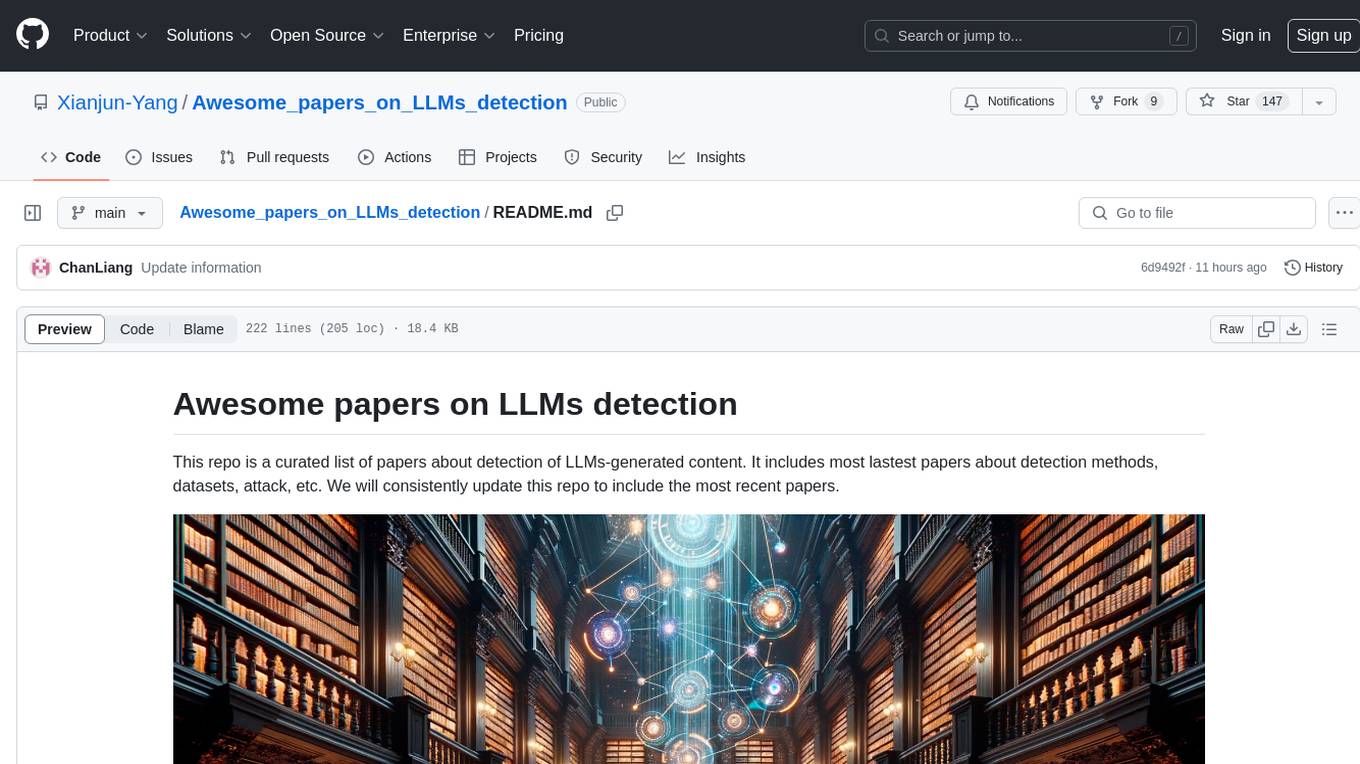
Awesome_papers_on_LLMs_detection
This repository is a curated list of papers focused on the detection of Large Language Models (LLMs)-generated content. It includes the latest research papers covering detection methods, datasets, attacks, and more. The repository is regularly updated to include the most recent papers in the field.
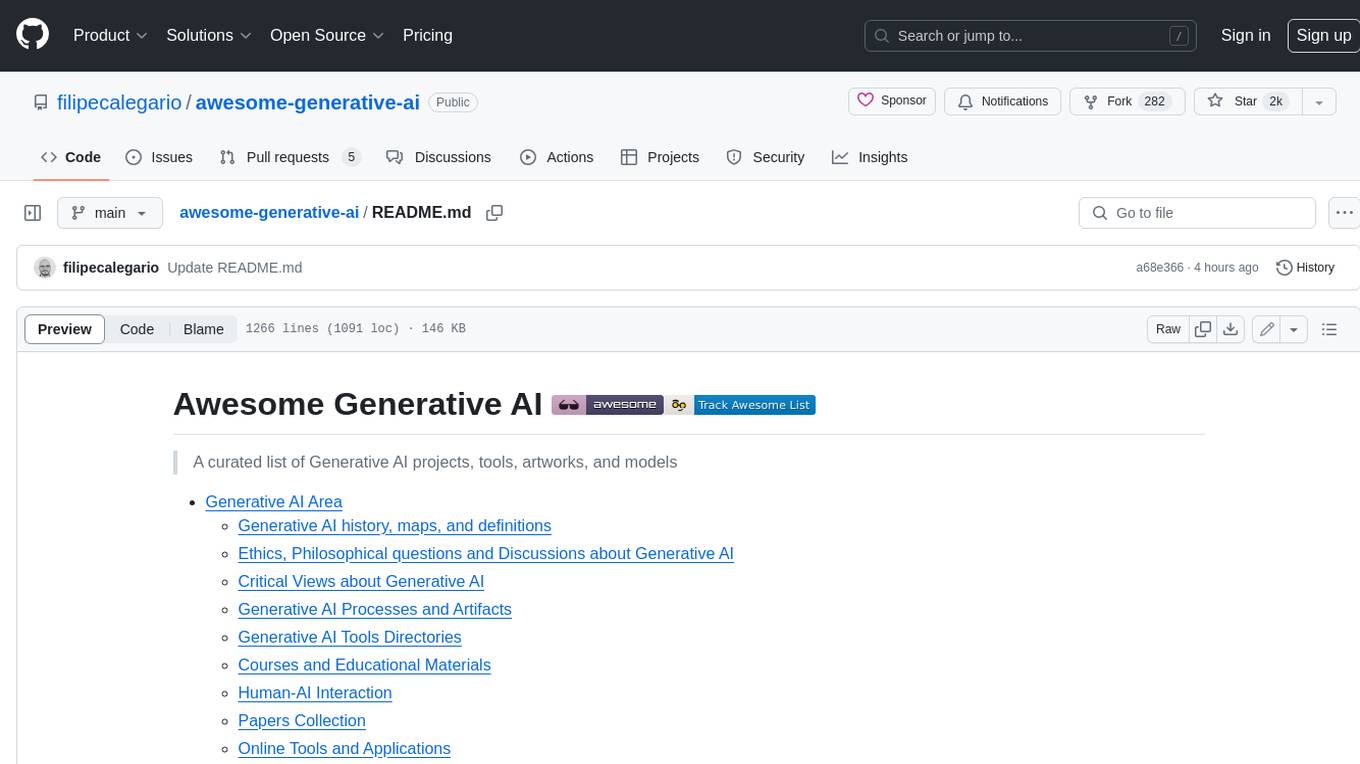
awesome-generative-ai
A curated list of Generative AI projects, tools, artworks, and models
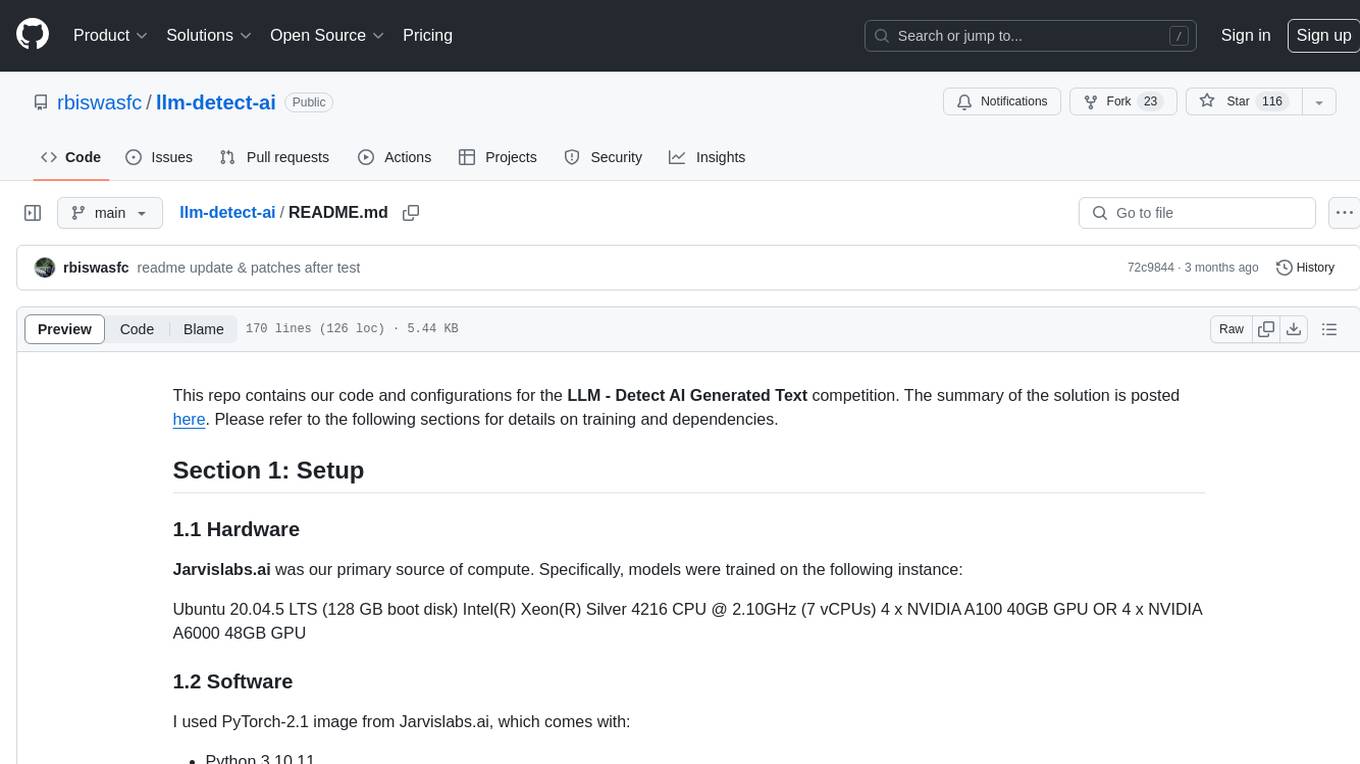
llm-detect-ai
This repository contains code and configurations for the LLM - Detect AI Generated Text competition. It includes setup instructions for hardware, software, dependencies, and datasets. The training section covers scripts and configurations for training LLM models, DeBERTa ranking models, and an embedding model. Text generation section details fine-tuning LLMs using the CLM objective on the PERSUADE corpus to generate student-like essays.
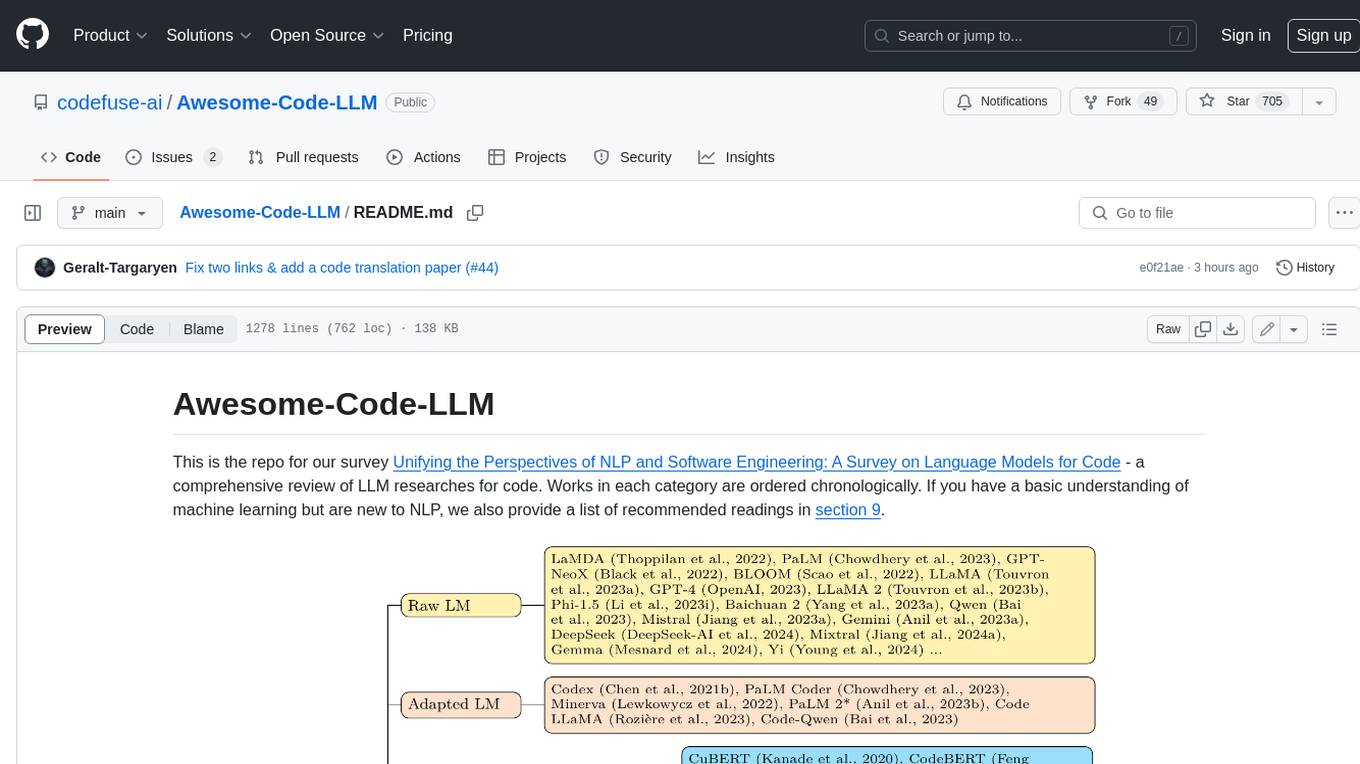
Awesome-Code-LLM
Analyze the following text from a github repository (name and readme text at end) . Then, generate a JSON object with the following keys and provide the corresponding information for each key, in lowercase letters: 'description' (detailed description of the repo, must be less than 400 words,Ensure that no line breaks and quotation marks.),'for_jobs' (List 5 jobs suitable for this tool,in lowercase letters), 'ai_keywords' (keywords of the tool,user may use those keyword to find the tool,in lowercase letters), 'for_tasks' (list of 5 specific tasks user can use this tool to do,in lowercase letters), 'answer' (in english languages)
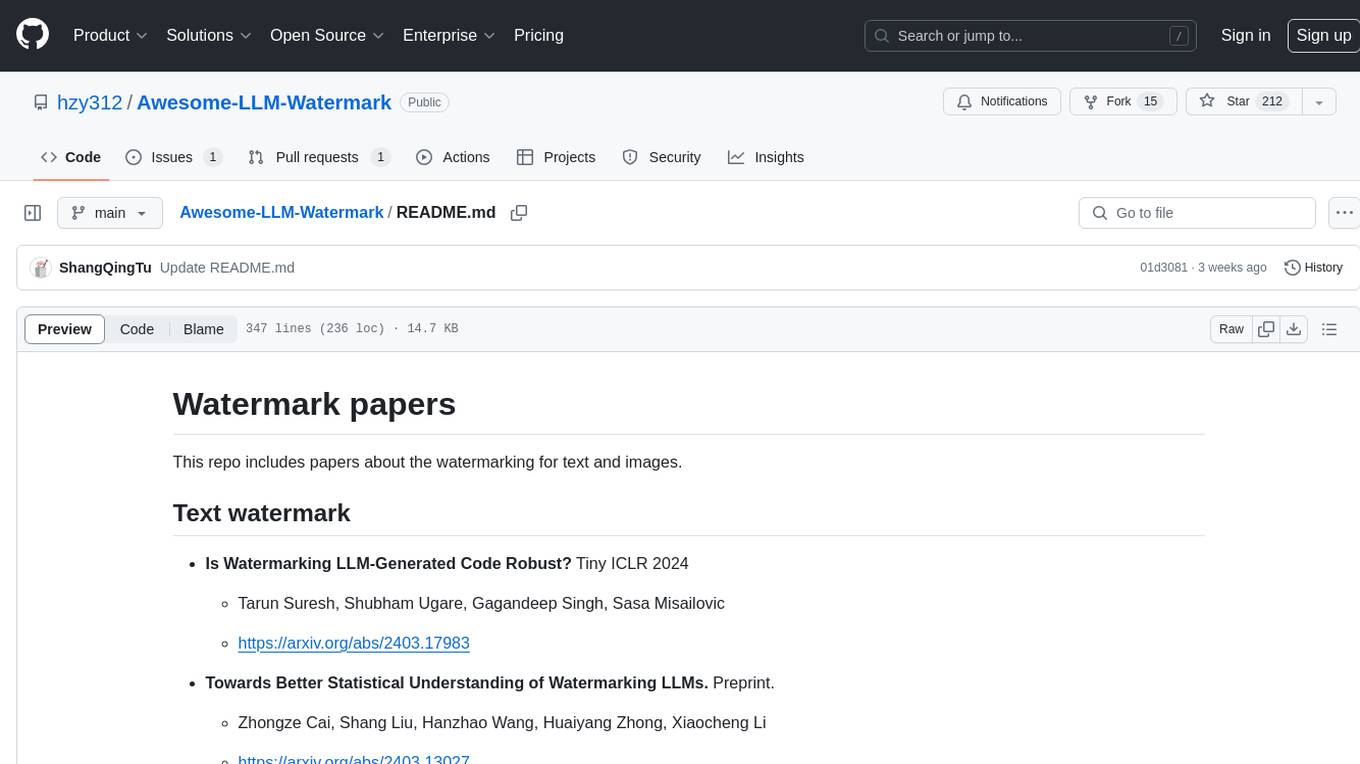
Awesome-LLM-Watermark
This repository contains a collection of research papers related to watermarking techniques for text and images, specifically focusing on large language models (LLMs). The papers cover various aspects of watermarking LLM-generated content, including robustness, statistical understanding, topic-based watermarks, quality-detection trade-offs, dual watermarks, watermark collision, and more. Researchers have explored different methods and frameworks for watermarking LLMs to protect intellectual property, detect machine-generated text, improve generation quality, and evaluate watermarking techniques. The repository serves as a valuable resource for those interested in the field of watermarking for LLMs.
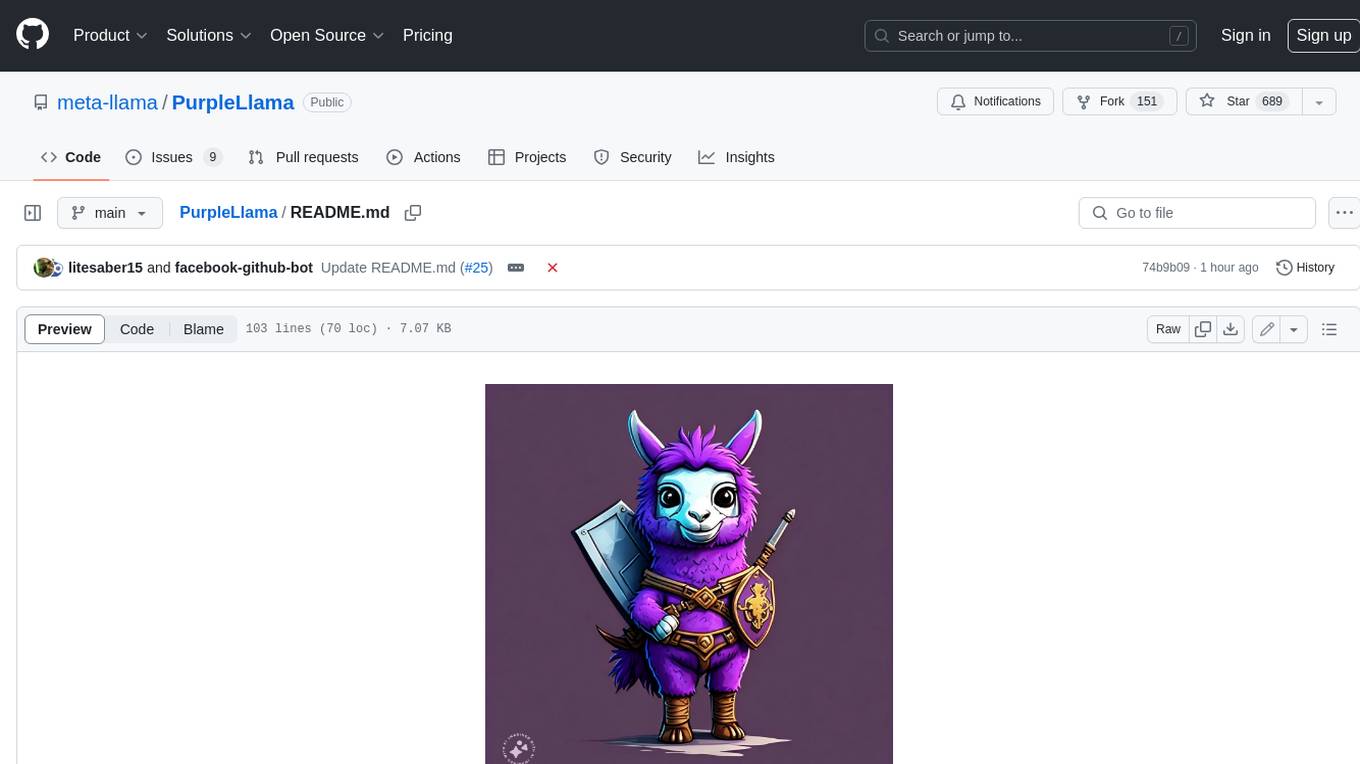
PurpleLlama
Purple Llama is an umbrella project that aims to provide tools and evaluations to support responsible development and usage of generative AI models. It encompasses components for cybersecurity and input/output safeguards, with plans to expand in the future. The project emphasizes a collaborative approach, borrowing the concept of purple teaming from cybersecurity, to address potential risks and challenges posed by generative AI. Components within Purple Llama are licensed permissively to foster community collaboration and standardize the development of trust and safety tools for generative AI.
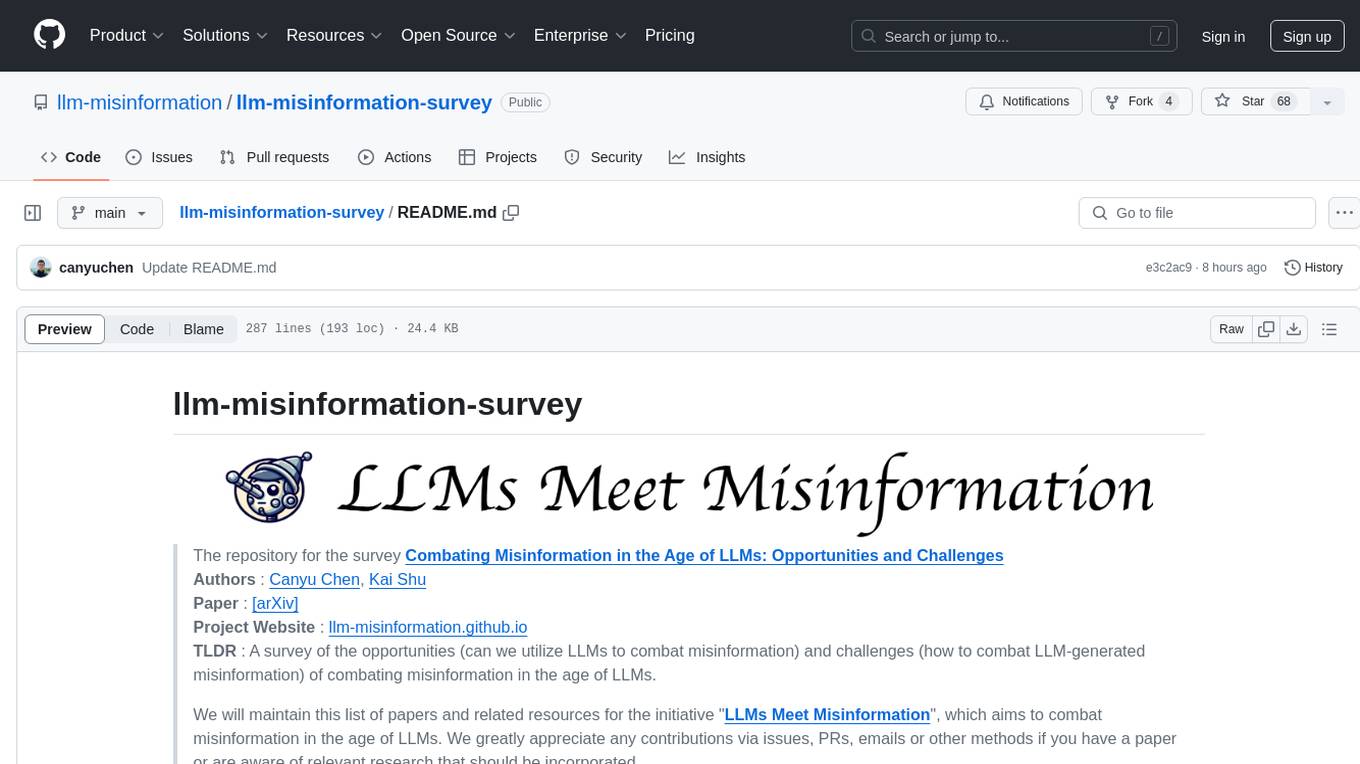
llm-misinformation-survey
The 'llm-misinformation-survey' repository is dedicated to the survey on combating misinformation in the age of Large Language Models (LLMs). It explores the opportunities and challenges of utilizing LLMs to combat misinformation, providing insights into the history of combating misinformation, current efforts, and future outlook. The repository serves as a resource hub for the initiative 'LLMs Meet Misinformation' and welcomes contributions of relevant research papers and resources. The goal is to facilitate interdisciplinary efforts in combating LLM-generated misinformation and promoting the responsible use of LLMs in fighting misinformation.
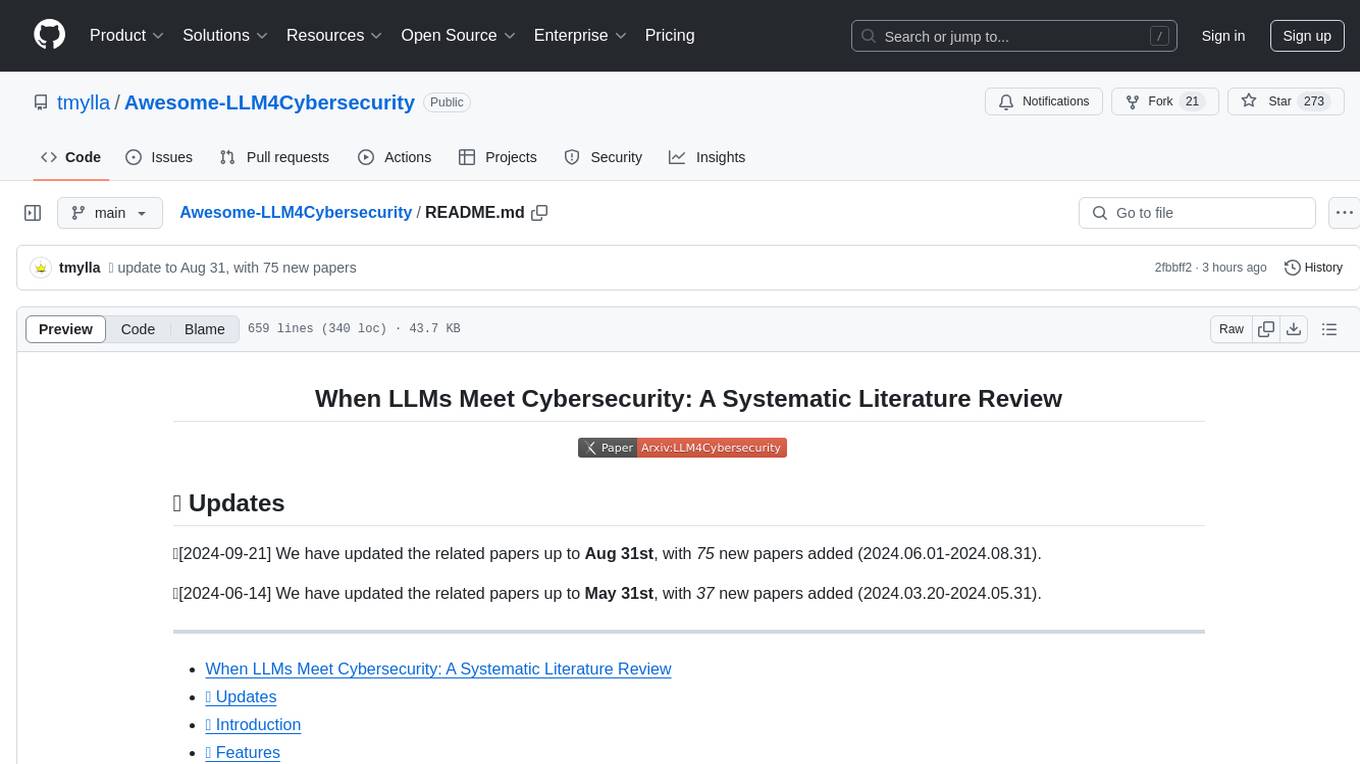
Awesome-LLM4Cybersecurity
The repository 'Awesome-LLM4Cybersecurity' provides a comprehensive overview of the applications of Large Language Models (LLMs) in cybersecurity. It includes a systematic literature review covering topics such as constructing cybersecurity-oriented domain LLMs, potential applications of LLMs in cybersecurity, and research directions in the field. The repository analyzes various benchmarks, datasets, and applications of LLMs in cybersecurity tasks like threat intelligence, fuzzing, vulnerabilities detection, insecure code generation, program repair, anomaly detection, and LLM-assisted attacks.
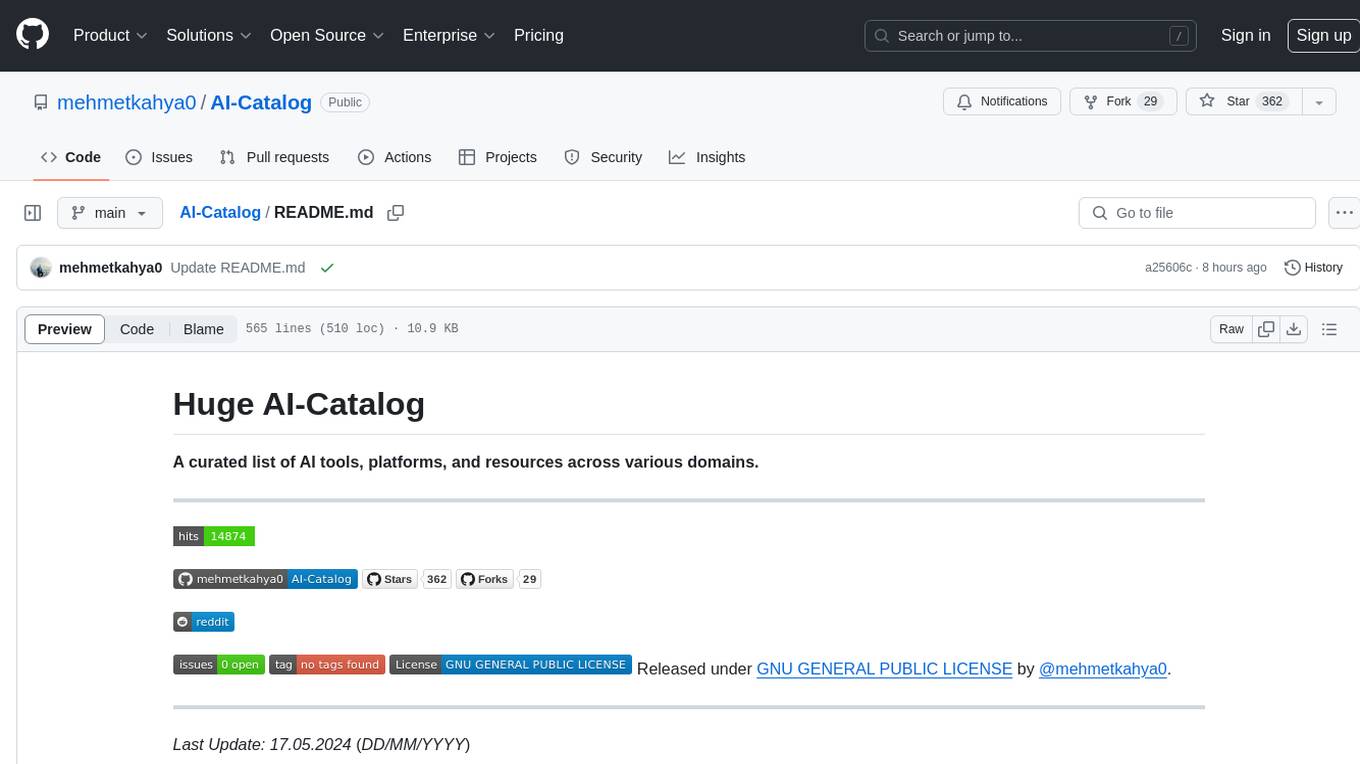
AI-Catalog
AI-Catalog is a curated list of AI tools, platforms, and resources across various domains. It serves as a comprehensive repository for users to discover and explore a wide range of AI applications. The catalog includes tools for tasks such as text-to-image generation, summarization, prompt generation, writing assistance, code assistance, developer tools, low code/no code tools, audio editing, video generation, 3D modeling, search engines, chatbots, email assistants, fun tools, gaming, music generation, presentation tools, website builders, education assistants, autonomous AI agents, photo editing, AI extensions, deep face/deep fake detection, text-to-speech, startup tools, SQL-related AI tools, education tools, and text-to-video conversion.
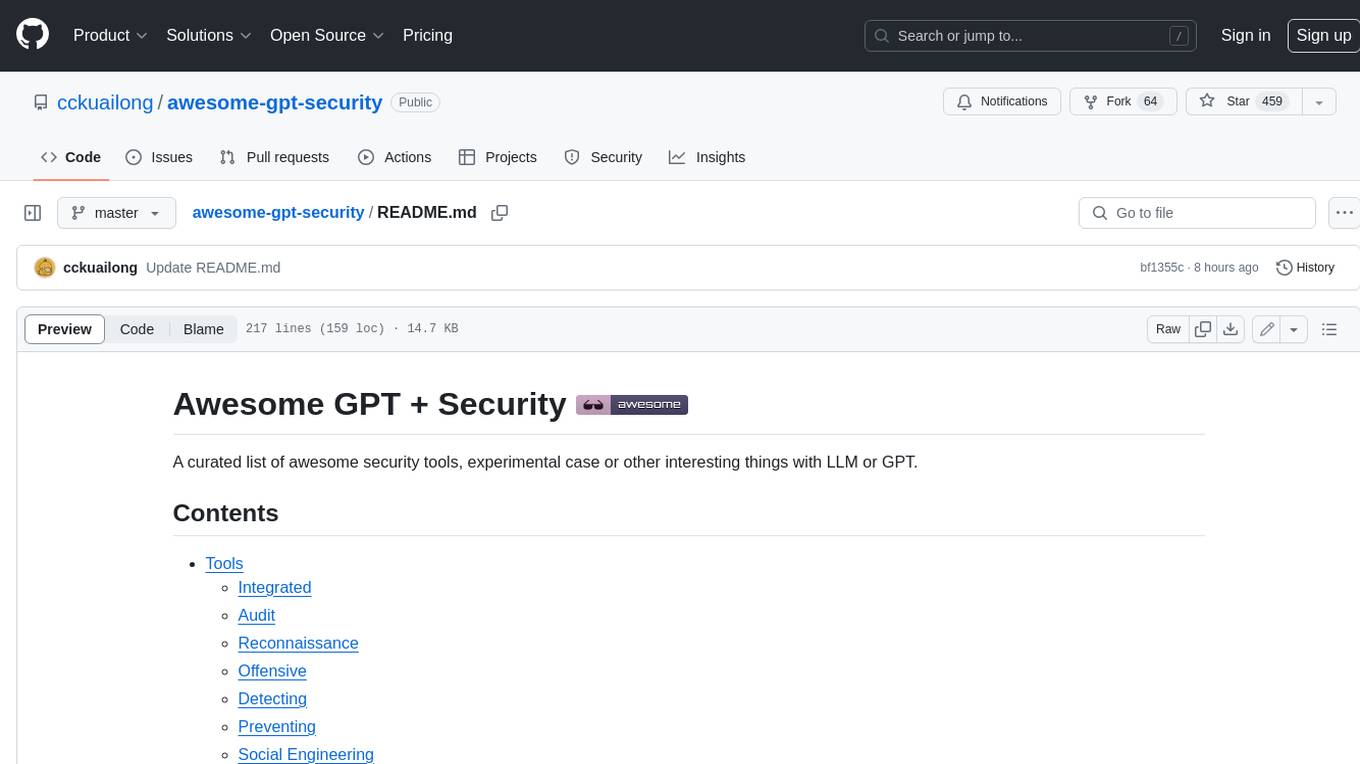
awesome-gpt-security
Awesome GPT + Security is a curated list of awesome security tools, experimental case or other interesting things with LLM or GPT. It includes tools for integrated security, auditing, reconnaissance, offensive security, detecting security issues, preventing security breaches, social engineering, reverse engineering, investigating security incidents, fixing security vulnerabilities, assessing security posture, and more. The list also includes experimental cases, academic research, blogs, and fun projects related to GPT security. Additionally, it provides resources on GPT security standards, bypassing security policies, bug bounty programs, cracking GPT APIs, and plugin security.
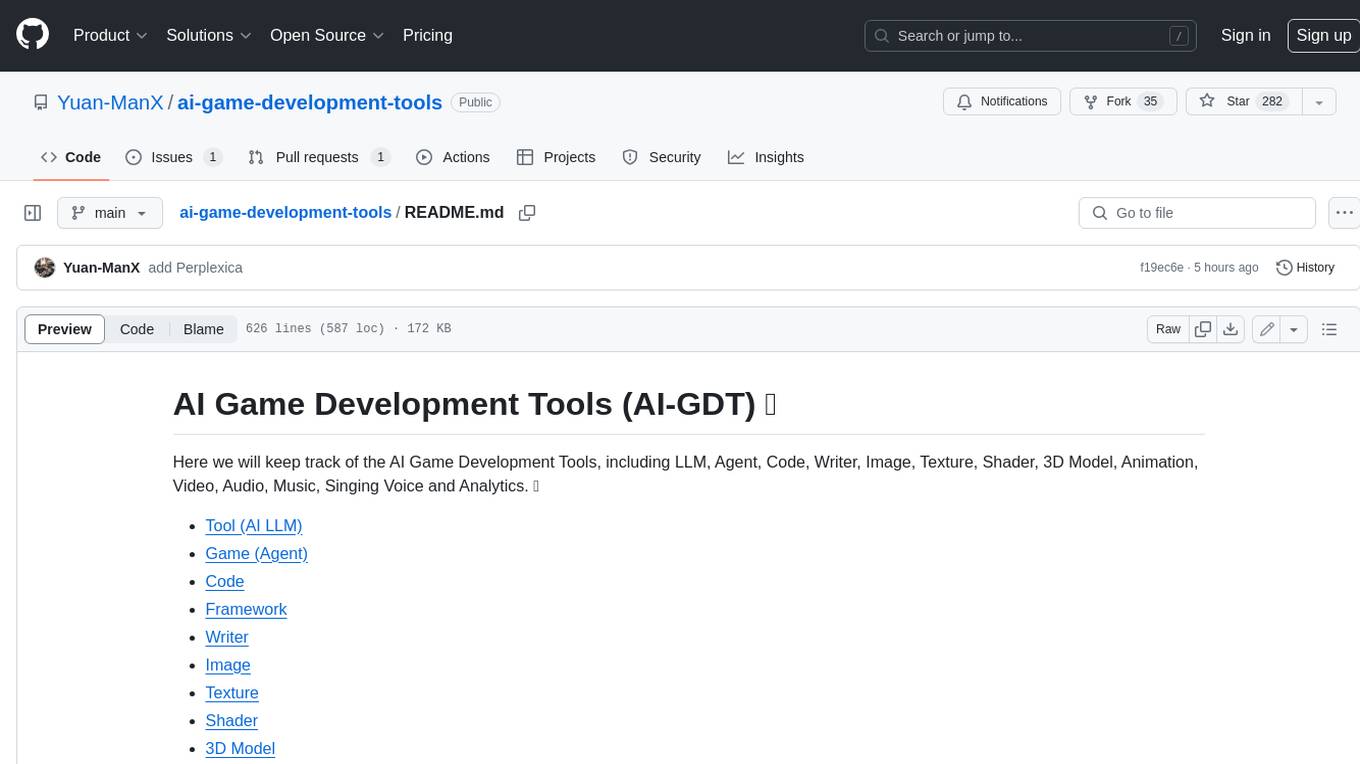
ai-game-development-tools
Here we will keep track of the AI Game Development Tools, including LLM, Agent, Code, Writer, Image, Texture, Shader, 3D Model, Animation, Video, Audio, Music, Singing Voice and Analytics. 🔥 * Tool (AI LLM) * Game (Agent) * Code * Framework * Writer * Image * Texture * Shader * 3D Model * Avatar * Animation * Video * Audio * Music * Singing Voice * Speech * Analytics * Video Tool
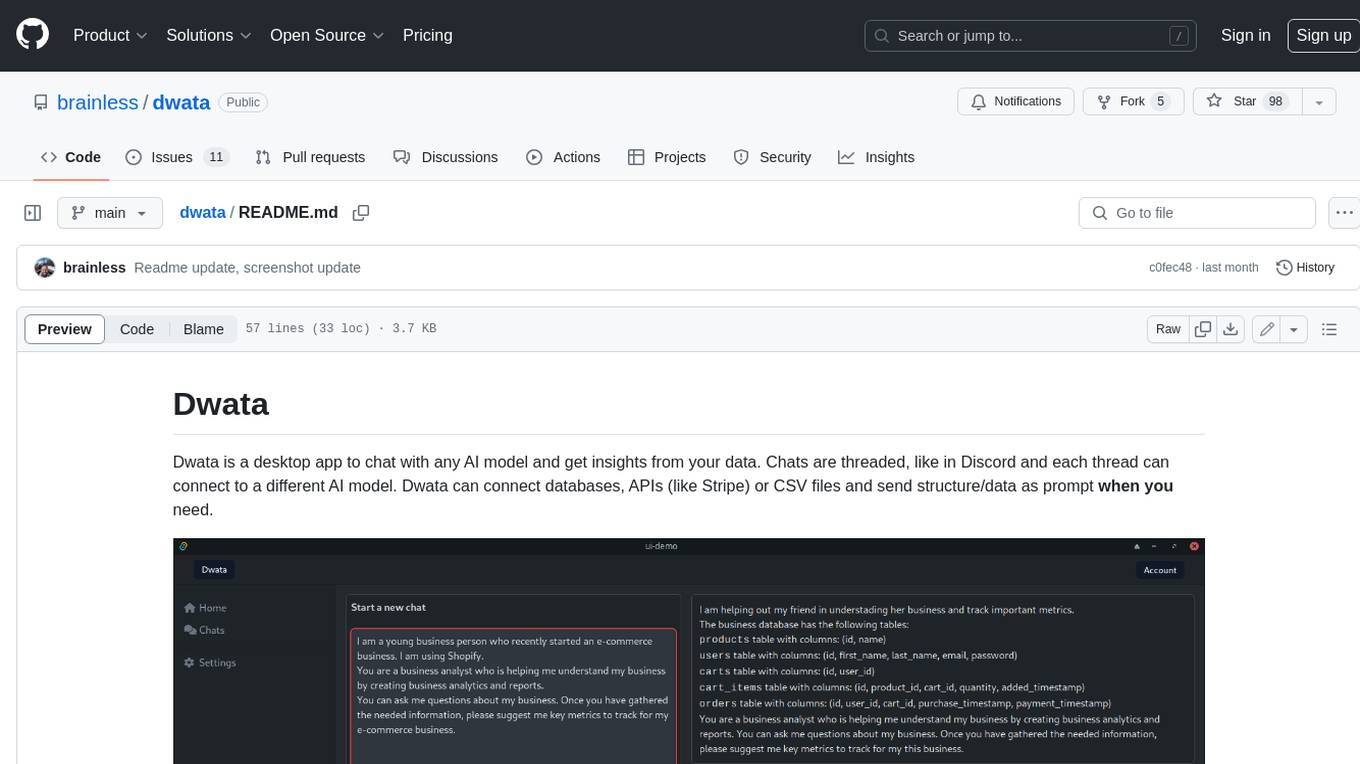
dwata
Dwata is a desktop application that allows users to chat with any AI model and gain insights from their data. Chats are organized into threads, similar to Discord, with each thread connecting to a different AI model. Dwata can connect to databases, APIs (such as Stripe), or CSV files and send structured data as prompts when needed. The AI's response will often include SQL or Python code, which can be used to extract the desired insights. Dwata can validate AI-generated SQL to ensure that the tables and columns referenced are correct and can execute queries against the database from within the application. Python code (typically using Pandas) can also be executed from within Dwata, although this feature is still in development. Dwata supports a range of AI models, including OpenAI's GPT-4, GPT-4 Turbo, and GPT-3.5 Turbo; Groq's LLaMA2-70b and Mixtral-8x7b; Phind's Phind-34B and Phind-70B; Anthropic's Claude; and Ollama's Llama 2, Mistral, and Phi-2 Gemma. Dwata can compare chats from different models, allowing users to see the responses of multiple models to the same prompts. Dwata can connect to various data sources, including databases (PostgreSQL, MySQL, MongoDB), SaaS products (Stripe, Shopify), CSV files/folders, and email (IMAP). The desktop application does not collect any private or business data without the user's explicit consent.
20 - OpenAI Gpts
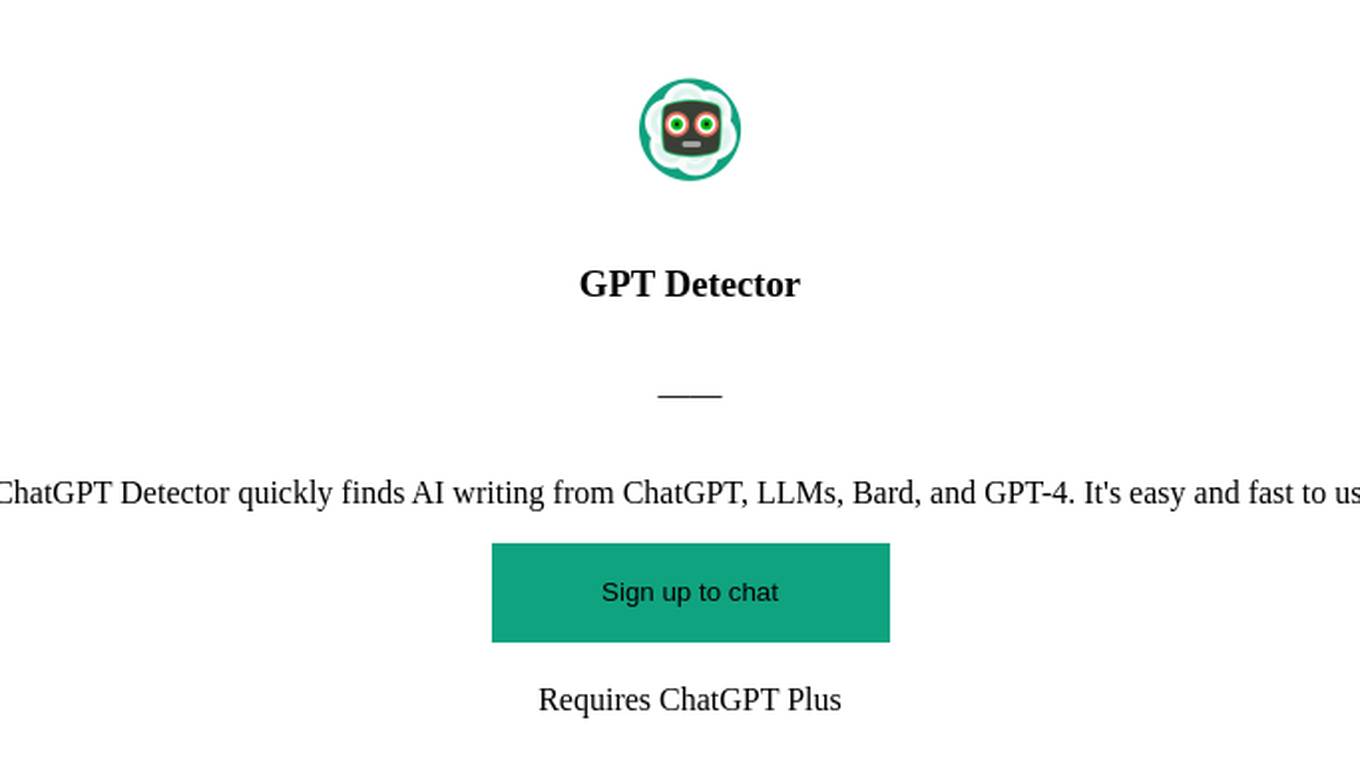
GPT Detector
ChatGPT Detector quickly finds AI writing from ChatGPT, LLMs, Bard, and GPT-4. It's easy and fast to use!
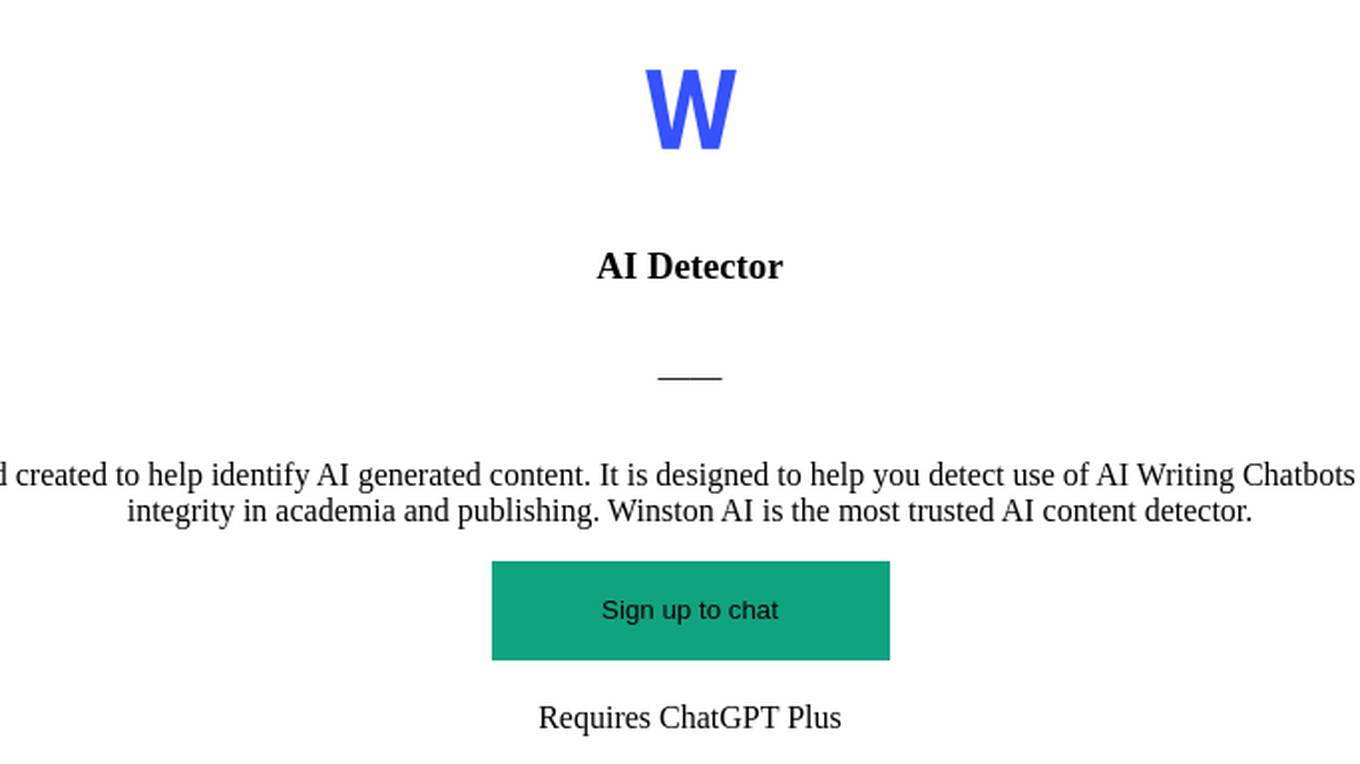
AI Detector
AI Detector GPT is powered by Winston AI and created to help identify AI generated content. It is designed to help you detect use of AI Writing Chatbots such as ChatGPT, Claude and Bard and maintain integrity in academia and publishing. Winston AI is the most trusted AI content detector.
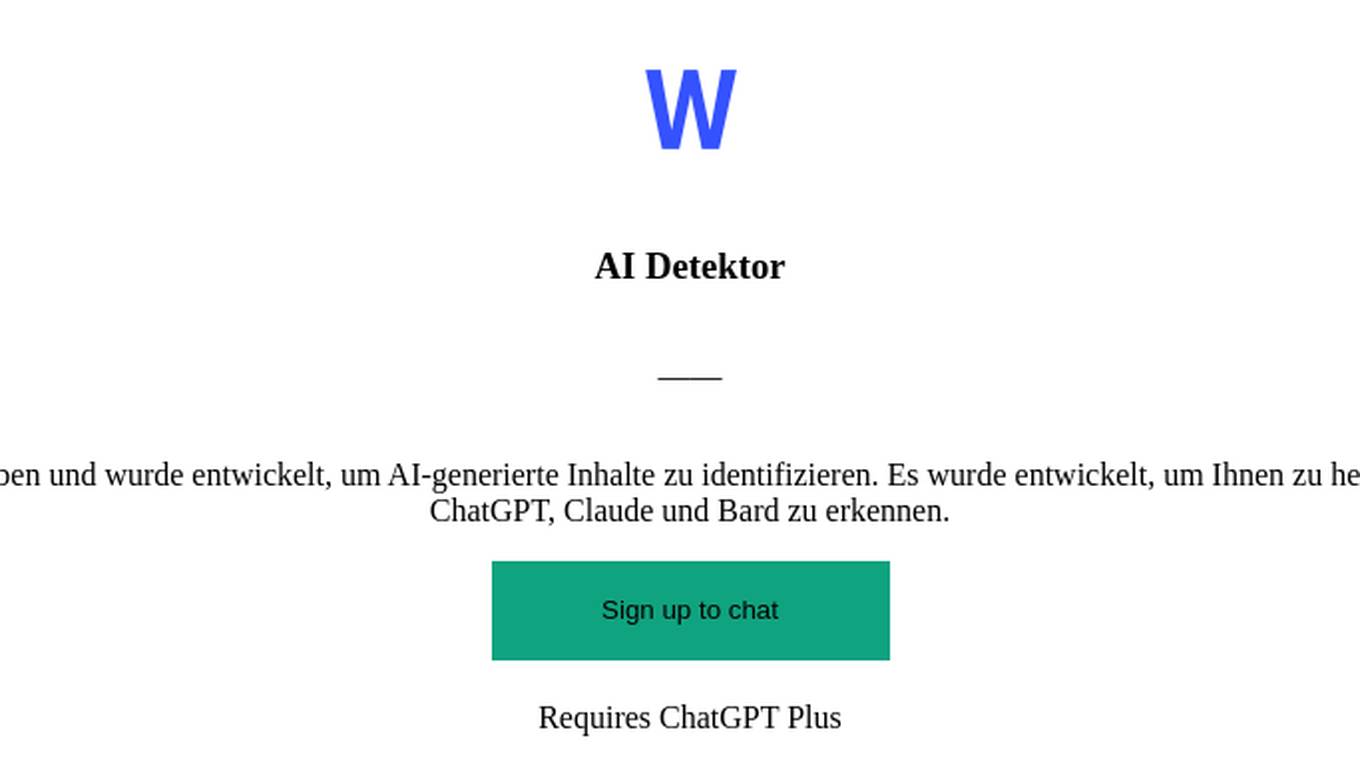
AI Detektor
Der AI Detektor GPT wird von Winston AI betrieben und wurde entwickelt, um AI-generierte Inhalte zu identifizieren. Es wurde entwickelt, um Ihnen zu helfen, die Verwendung von KI-Schreib-Chatbots wie ChatGPT, Claude und Bard zu erkennen.
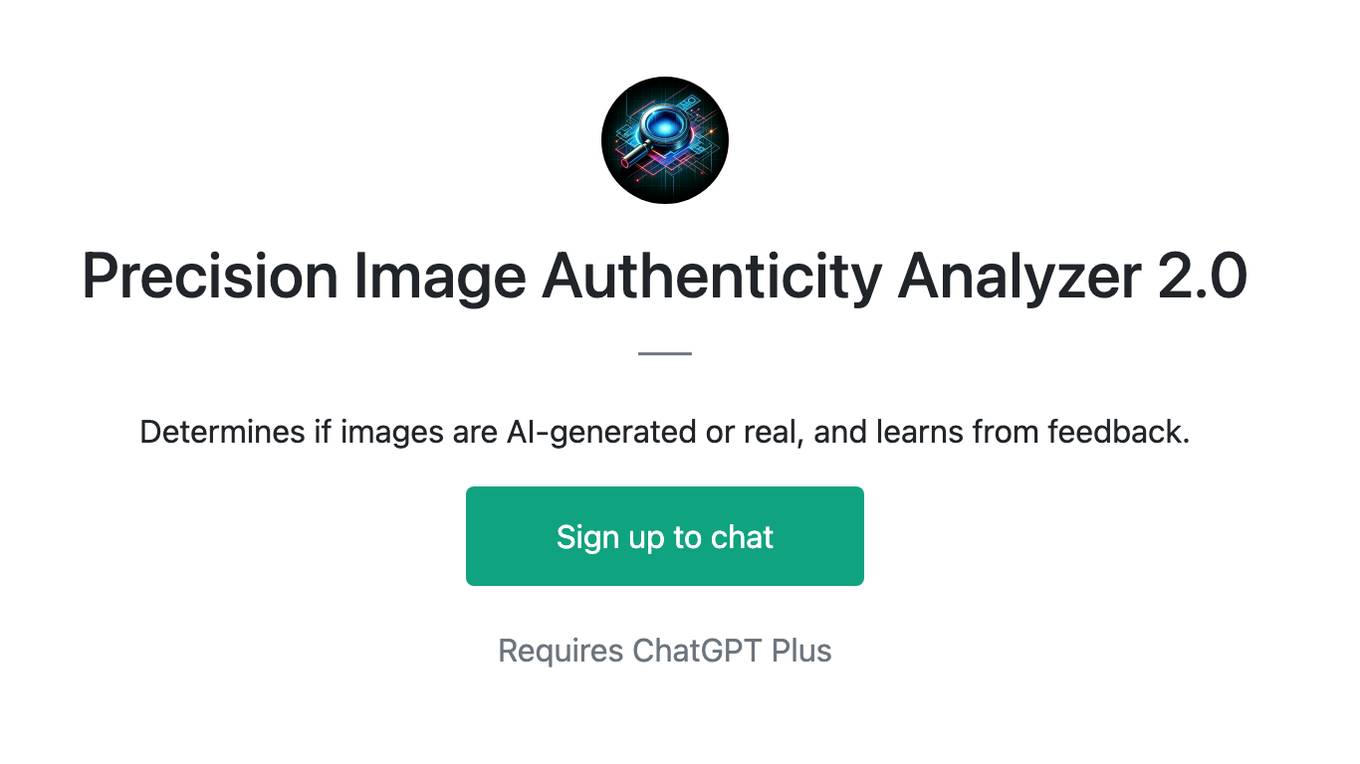
Precision Image Authenticity Analyzer 2.0
Determines if images are AI-generated or real, and learns from feedback.
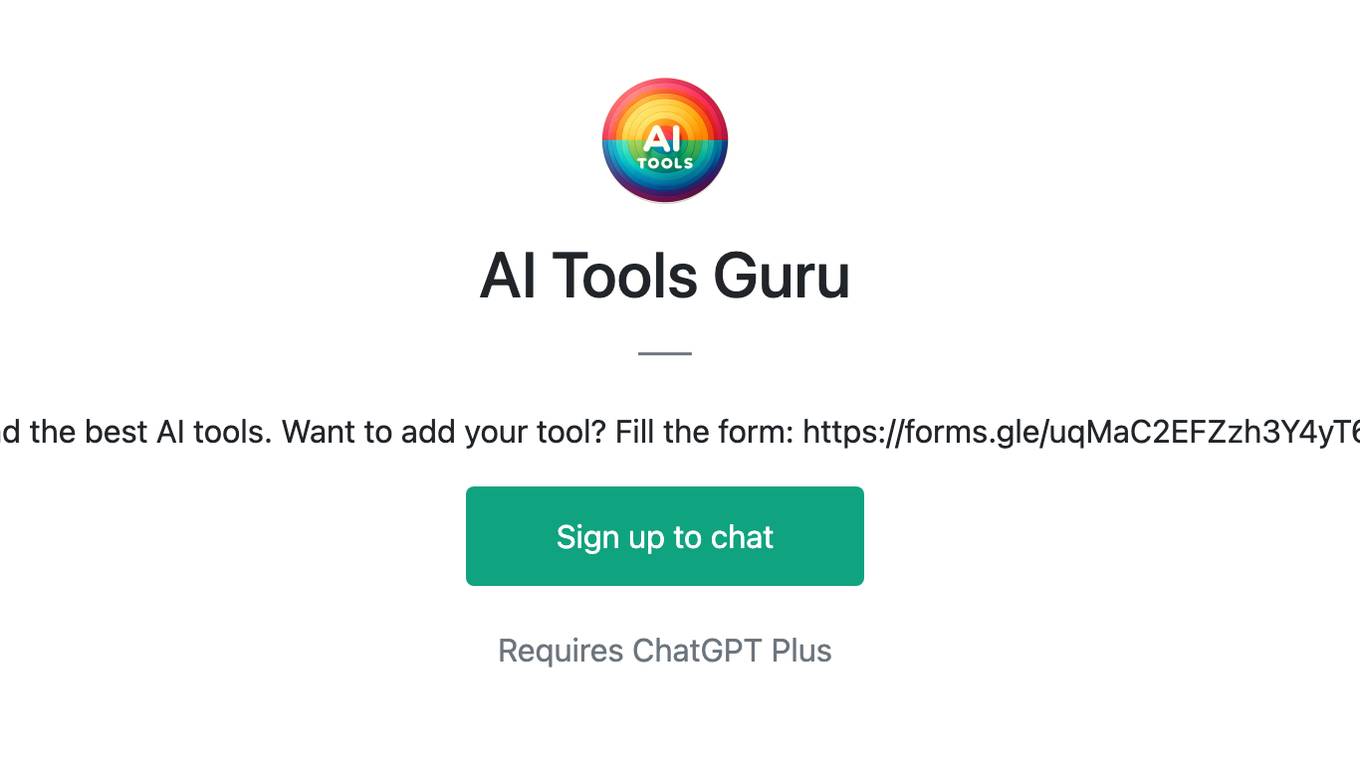
AI Tools Guru
Find the best AI tools. Want to add your tool? Fill the form: https://forms.gle/uqMaC2EFZzh3Y4yT6
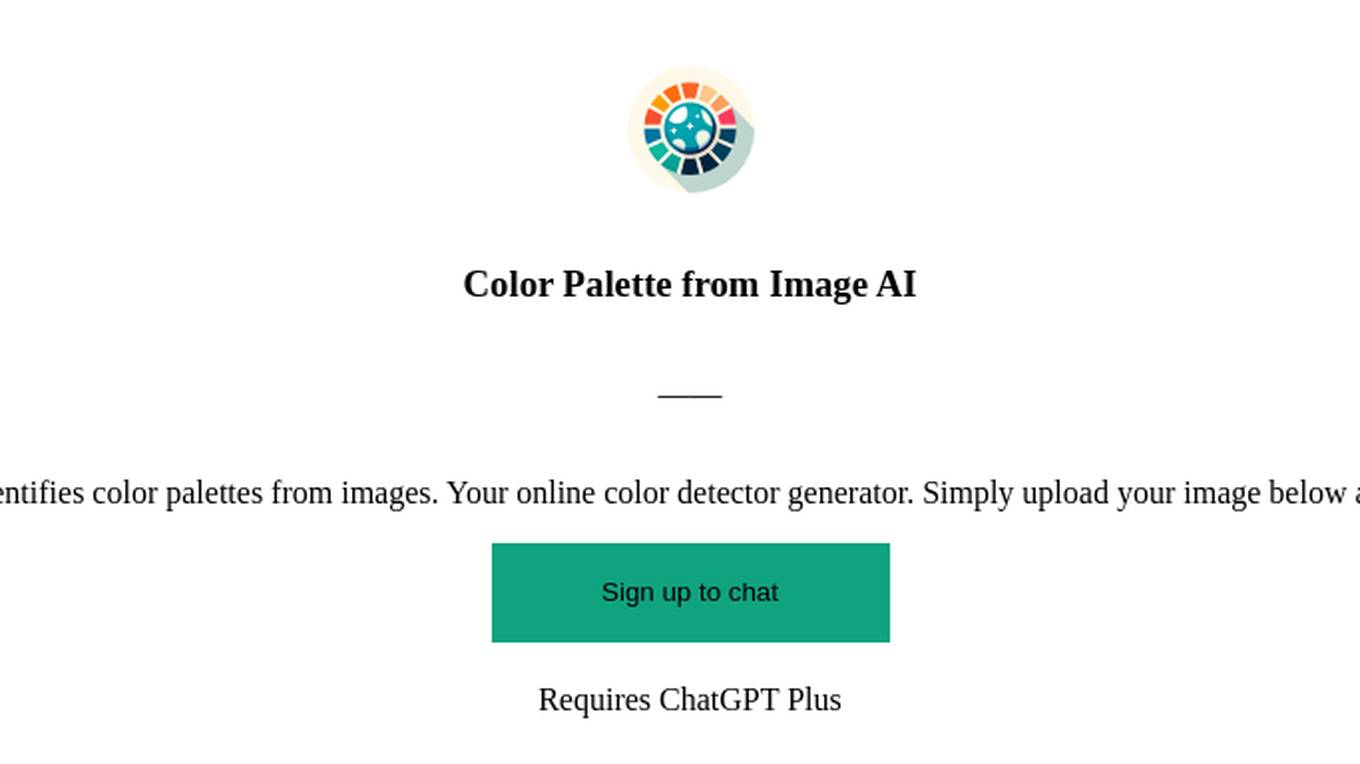
Color Palette from Image AI
Analyses and identifies color palettes from images. Your online color detector generator. Simply upload your image below and see the magic!
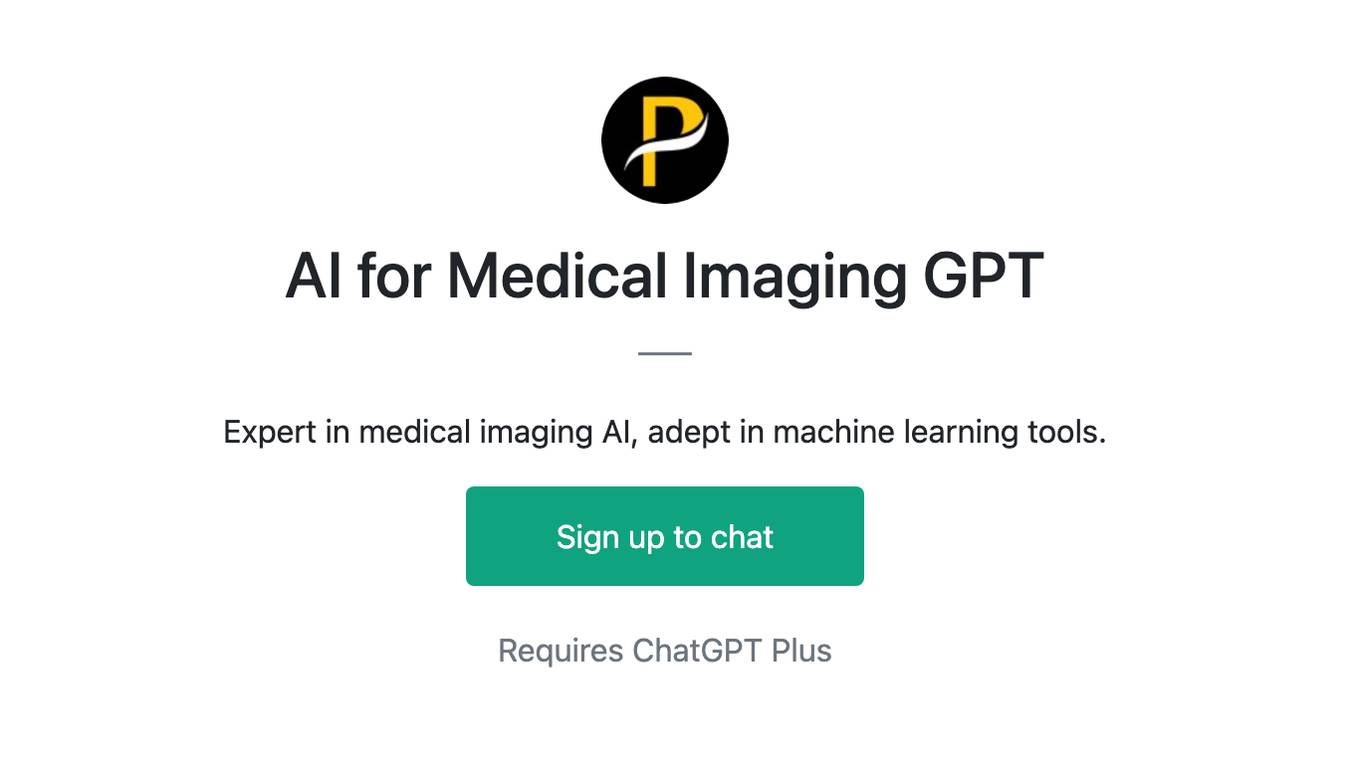
AI for Medical Imaging GPT
Expert in medical imaging AI, adept in machine learning tools.

恋のゆくえ Koi No Yukue
大阪のおばちゃんがLINEで受け取った異性のメッセージを脈ありかないかを占ってくれます。 Analyzes messages with a friendly Osaka-style tone, focusing on response speed and emoticons.
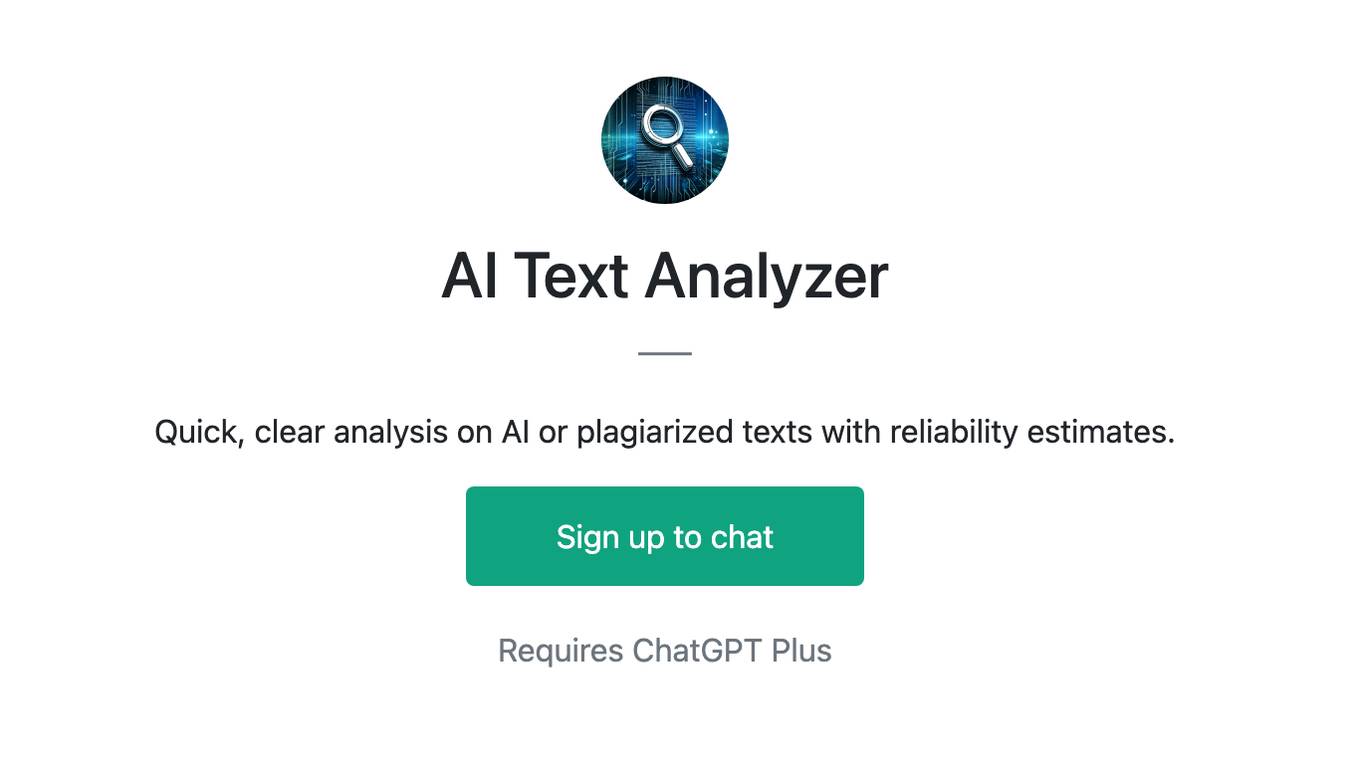
AI Text Analyzer
Quick, clear analysis on AI or plagiarized texts with reliability estimates.
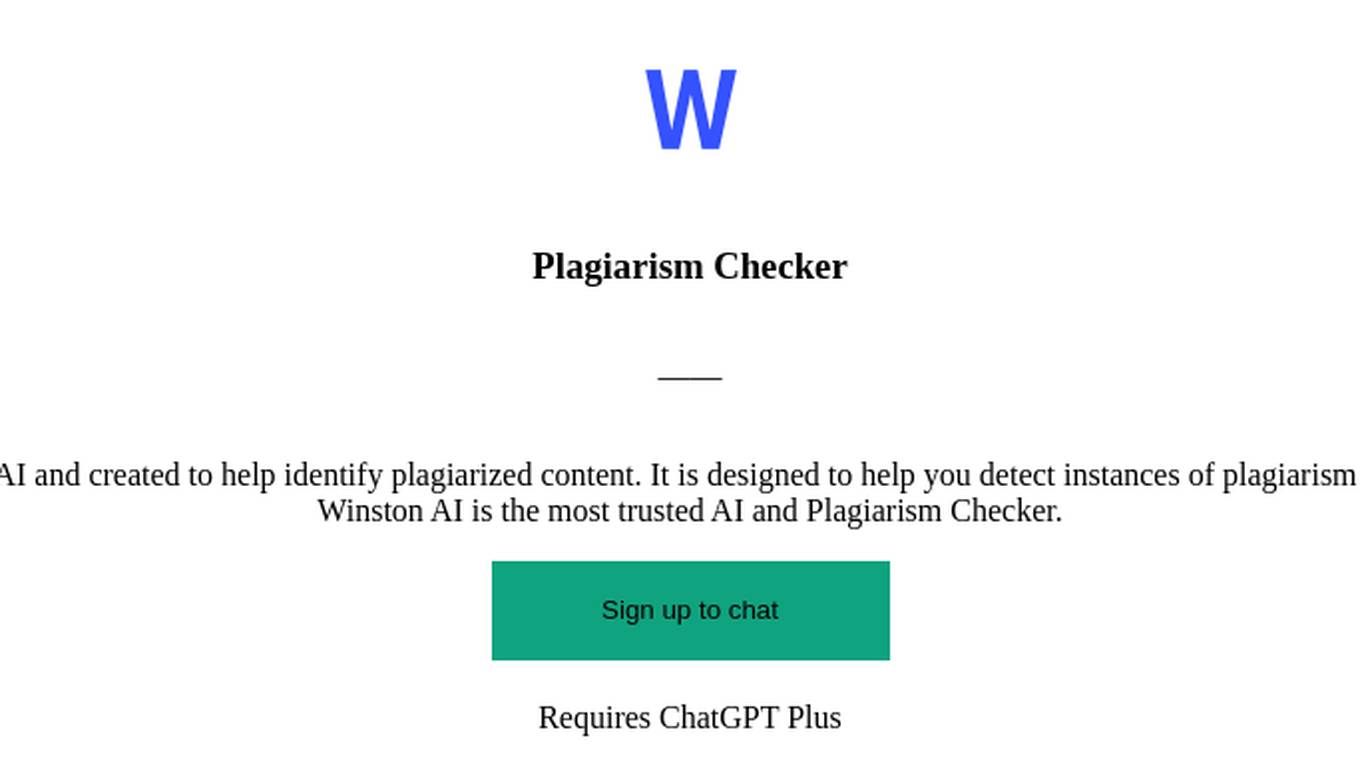
Plagiarism Checker
Plagiarism Checker GPT is powered by Winston AI and created to help identify plagiarized content. It is designed to help you detect instances of plagiarism and maintain integrity in academia and publishing. Winston AI is the most trusted AI and Plagiarism Checker.
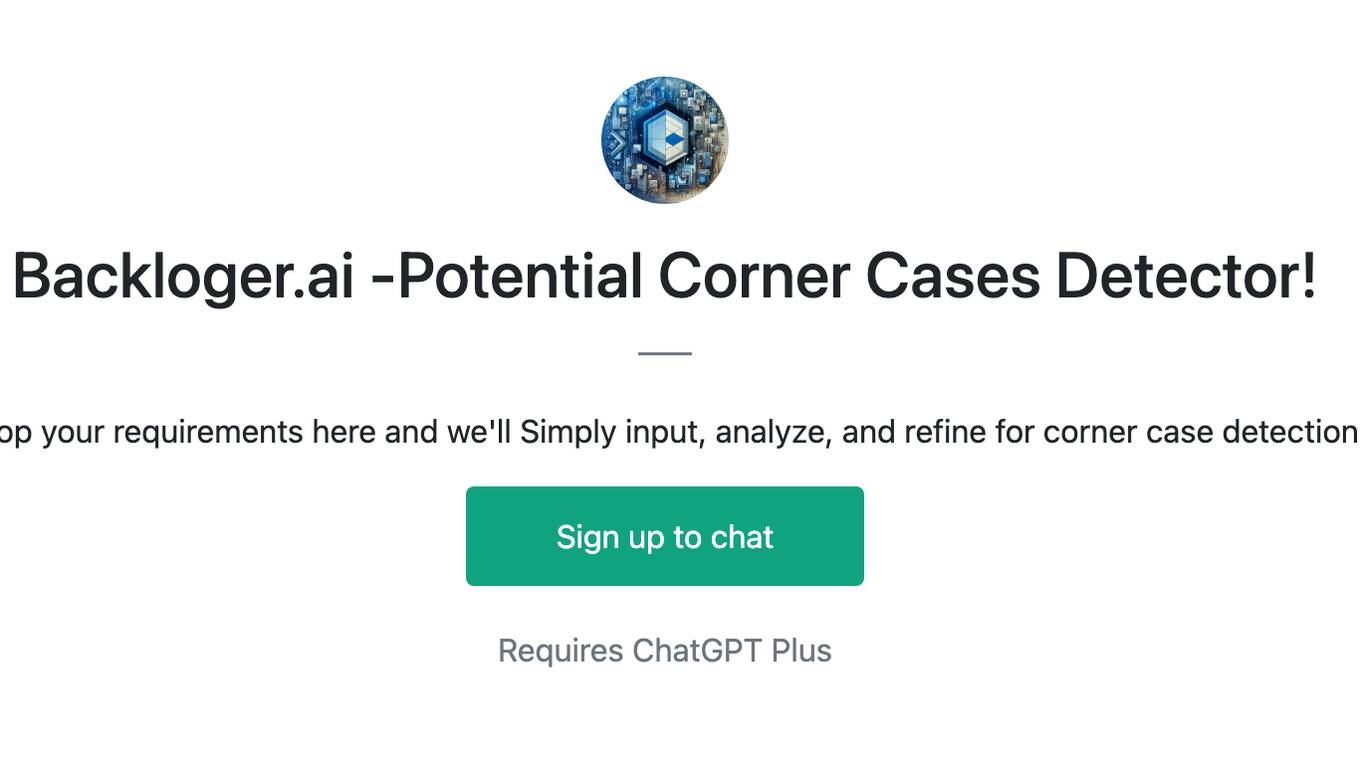
Backloger.ai -Potential Corner Cases Detector!
Drop your requirements here and we'll Simply input, analyze, and refine for corner case detection!
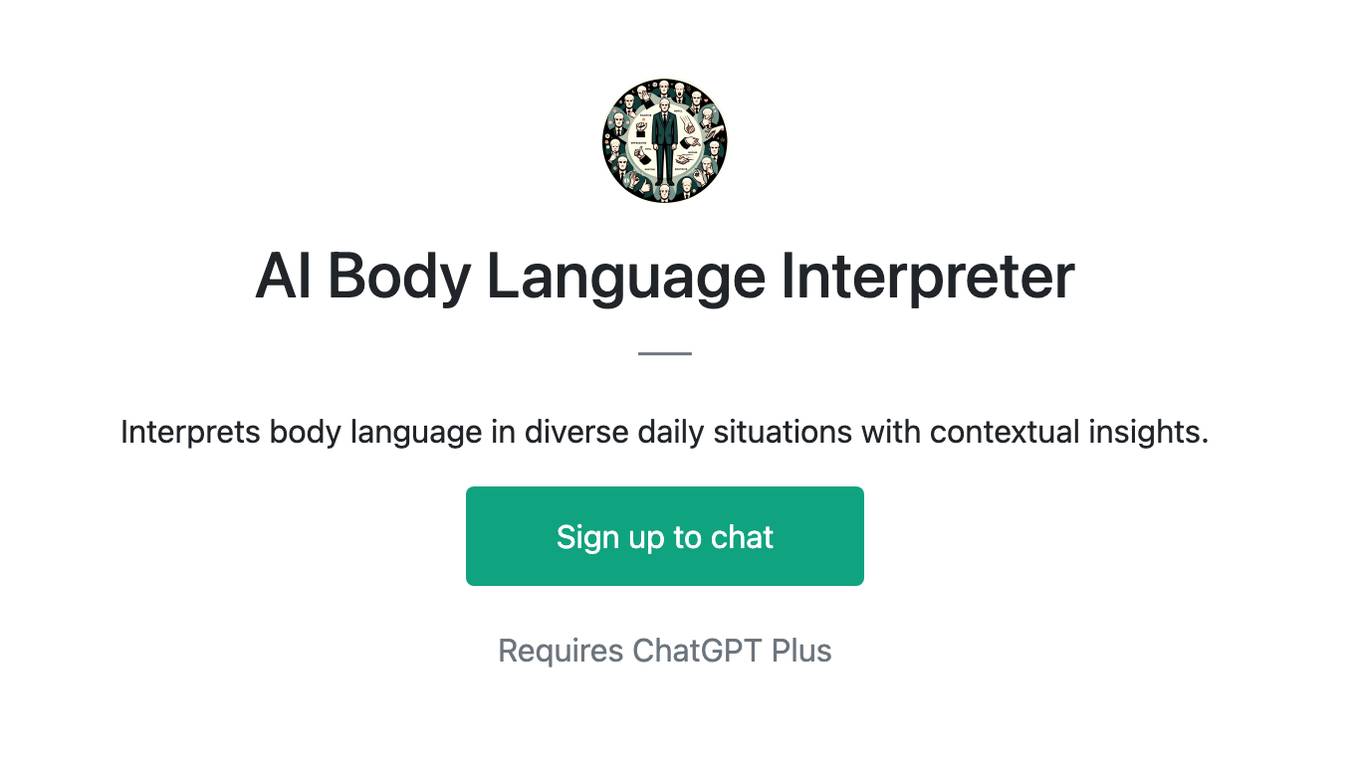
AI Body Language Interpreter
Interprets body language in diverse daily situations with contextual insights.
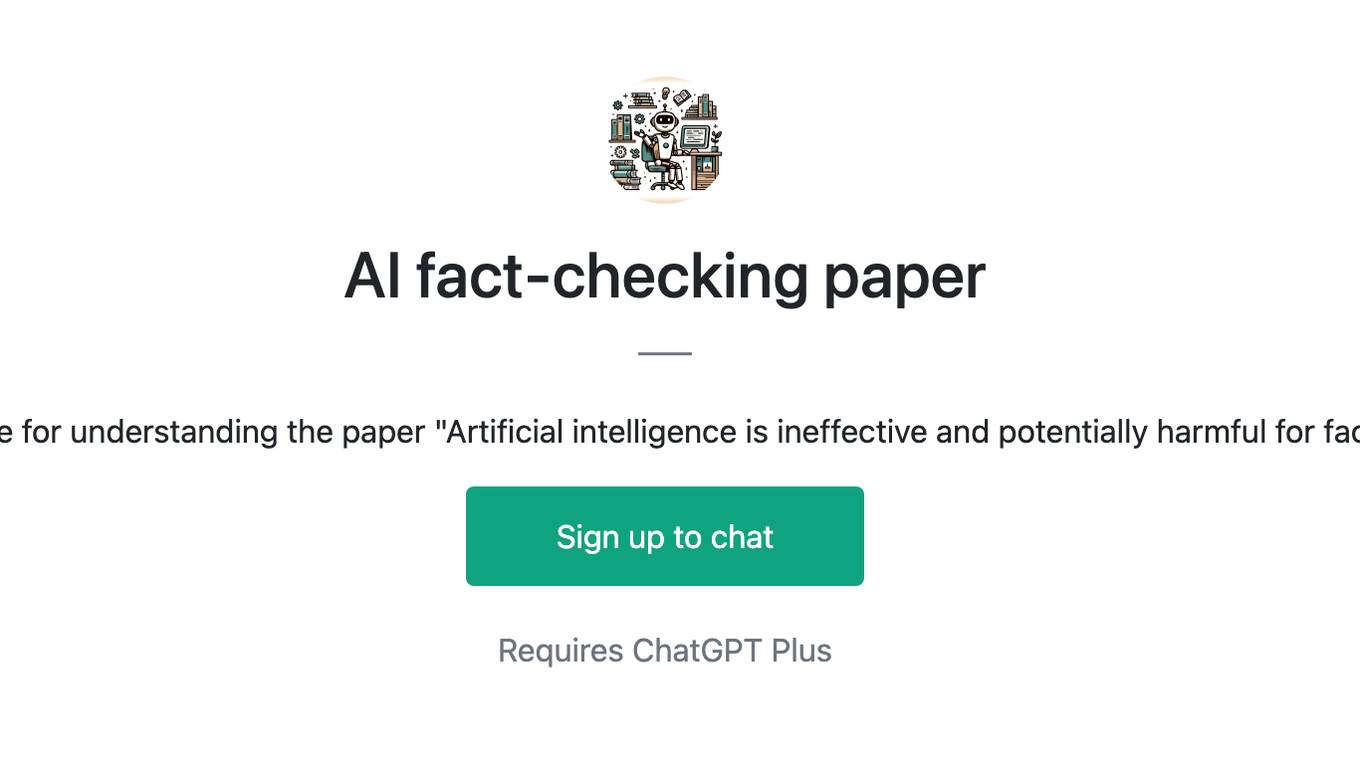
AI fact-checking paper
A helpful guide for understanding the paper "Artificial intelligence is ineffective and potentially harmful for fact checking"
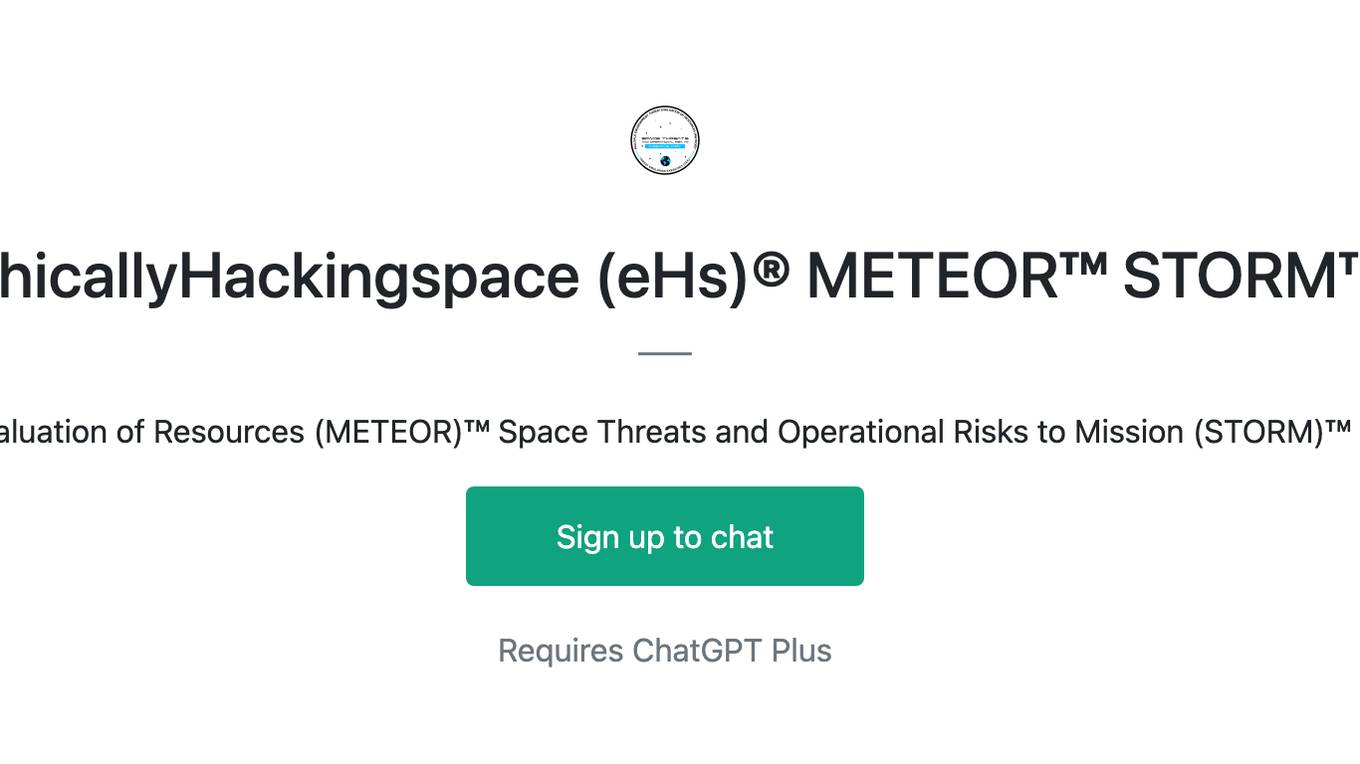
ethicallyHackingspace (eHs)® METEOR™ STORM™
Multiple Environment Threat Evaluation of Resources (METEOR)™ Space Threats and Operational Risks to Mission (STORM)™ non-profit product AI co-pilot
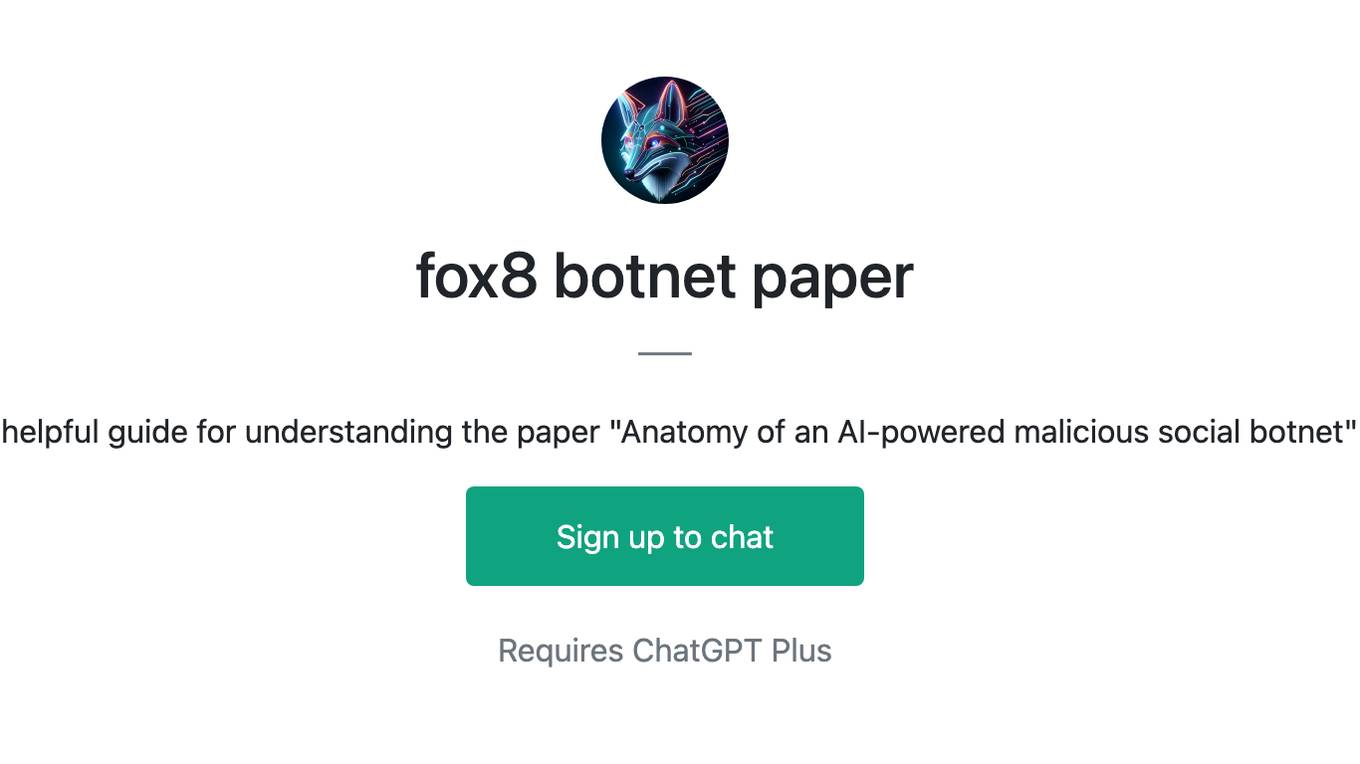
fox8 botnet paper
A helpful guide for understanding the paper "Anatomy of an AI-powered malicious social botnet"
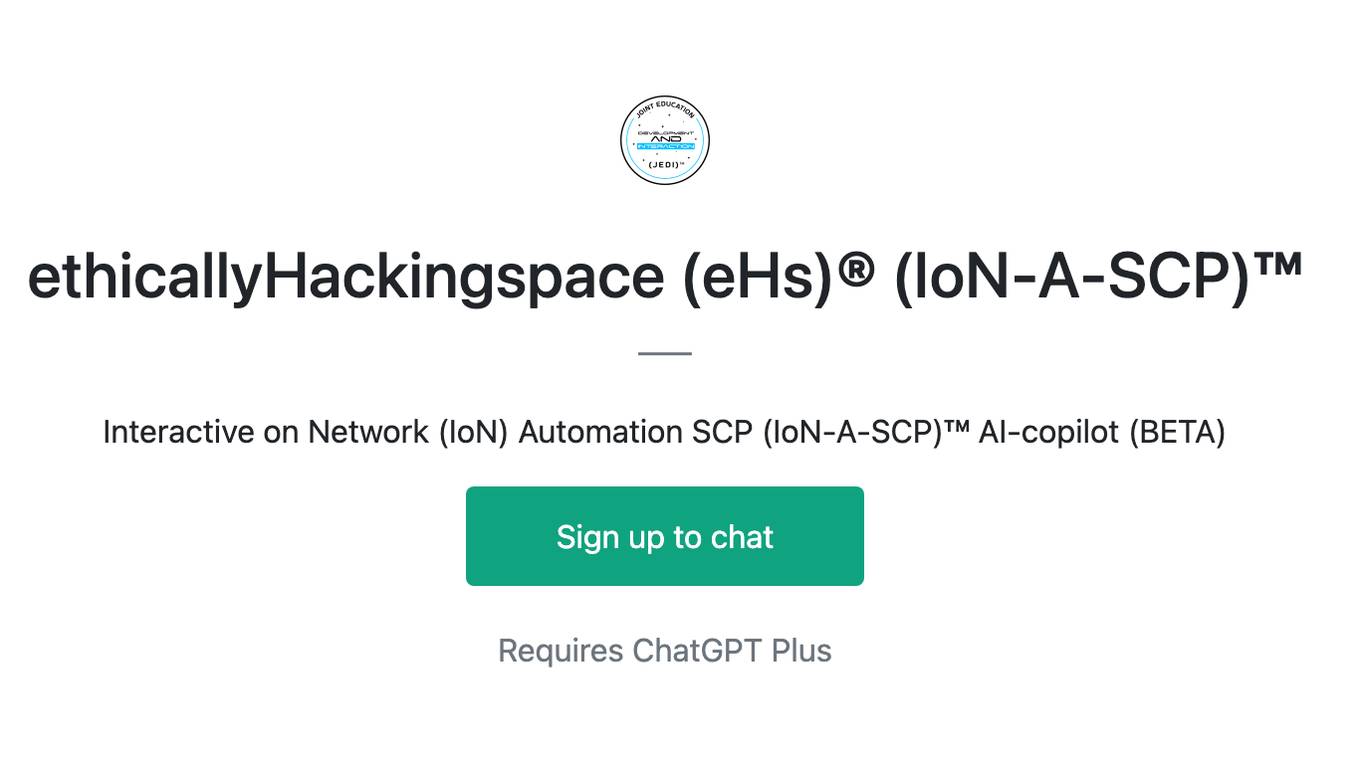
ethicallyHackingspace (eHs)® (IoN-A-SCP)™
Interactive on Network (IoN) Automation SCP (IoN-A-SCP)™ AI-copilot (BETA)
